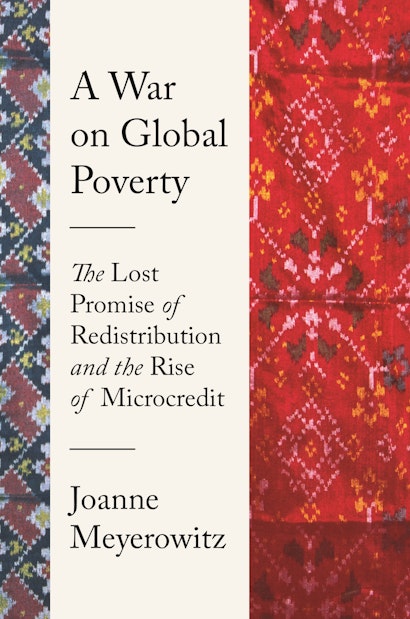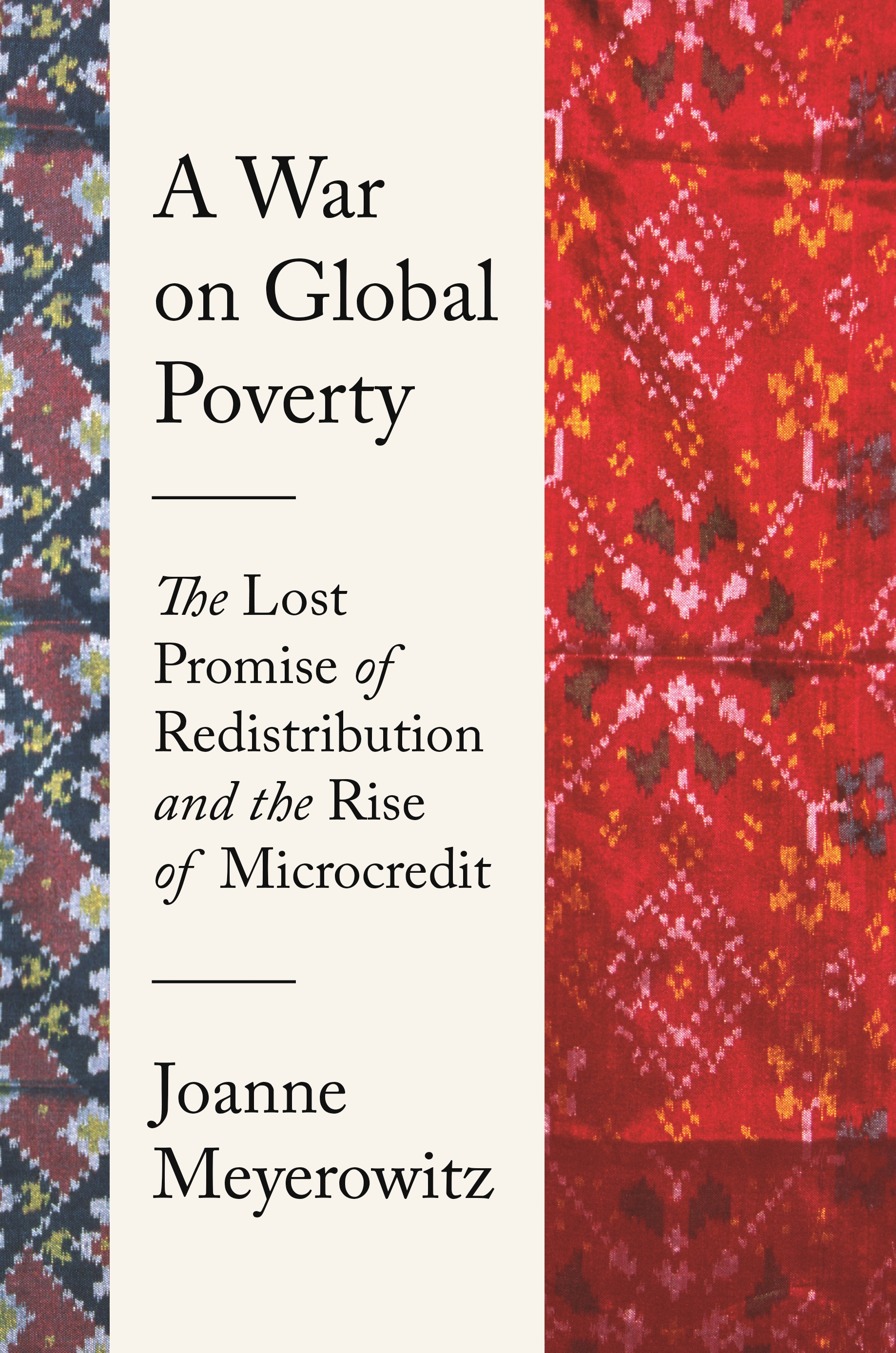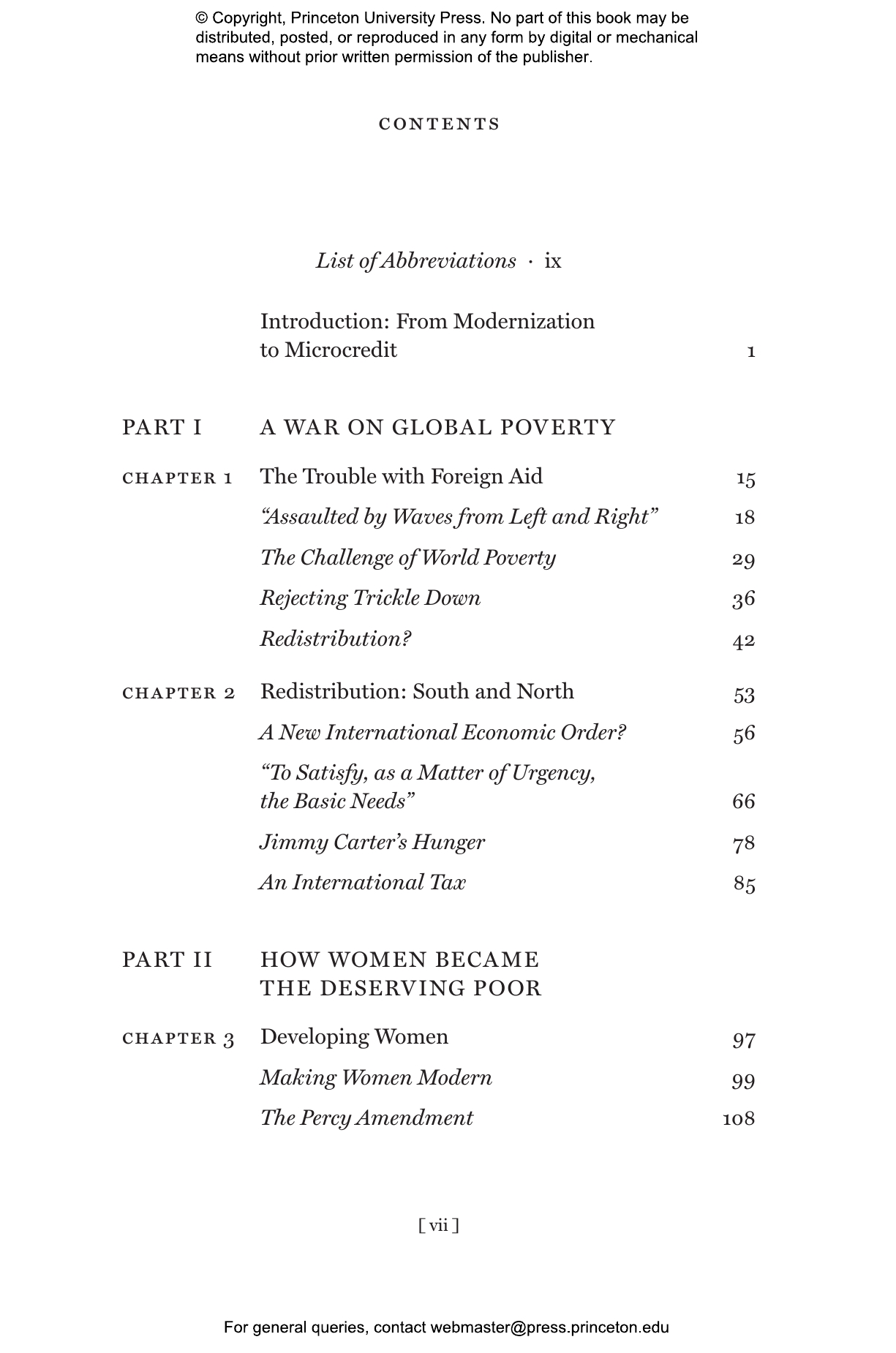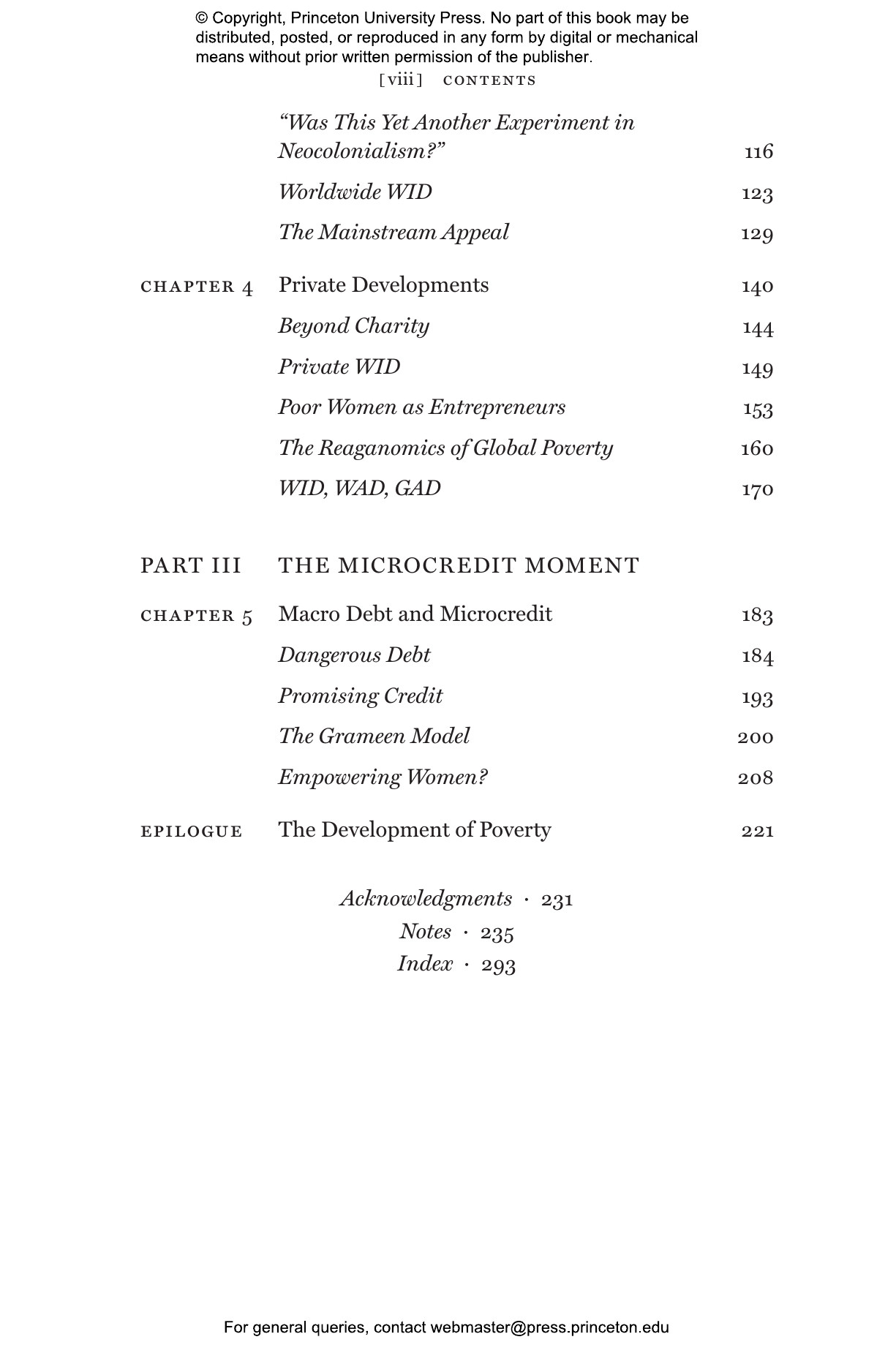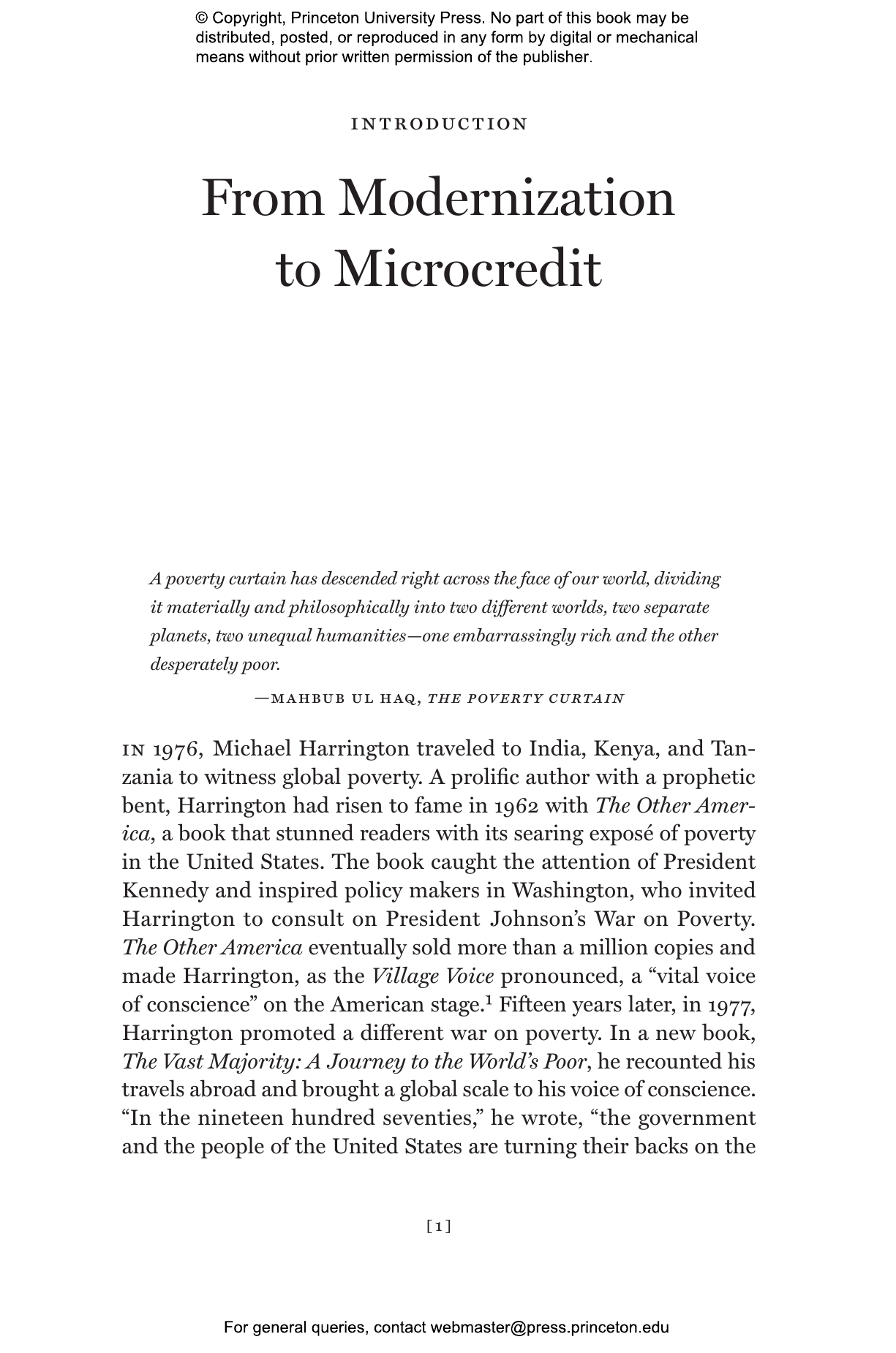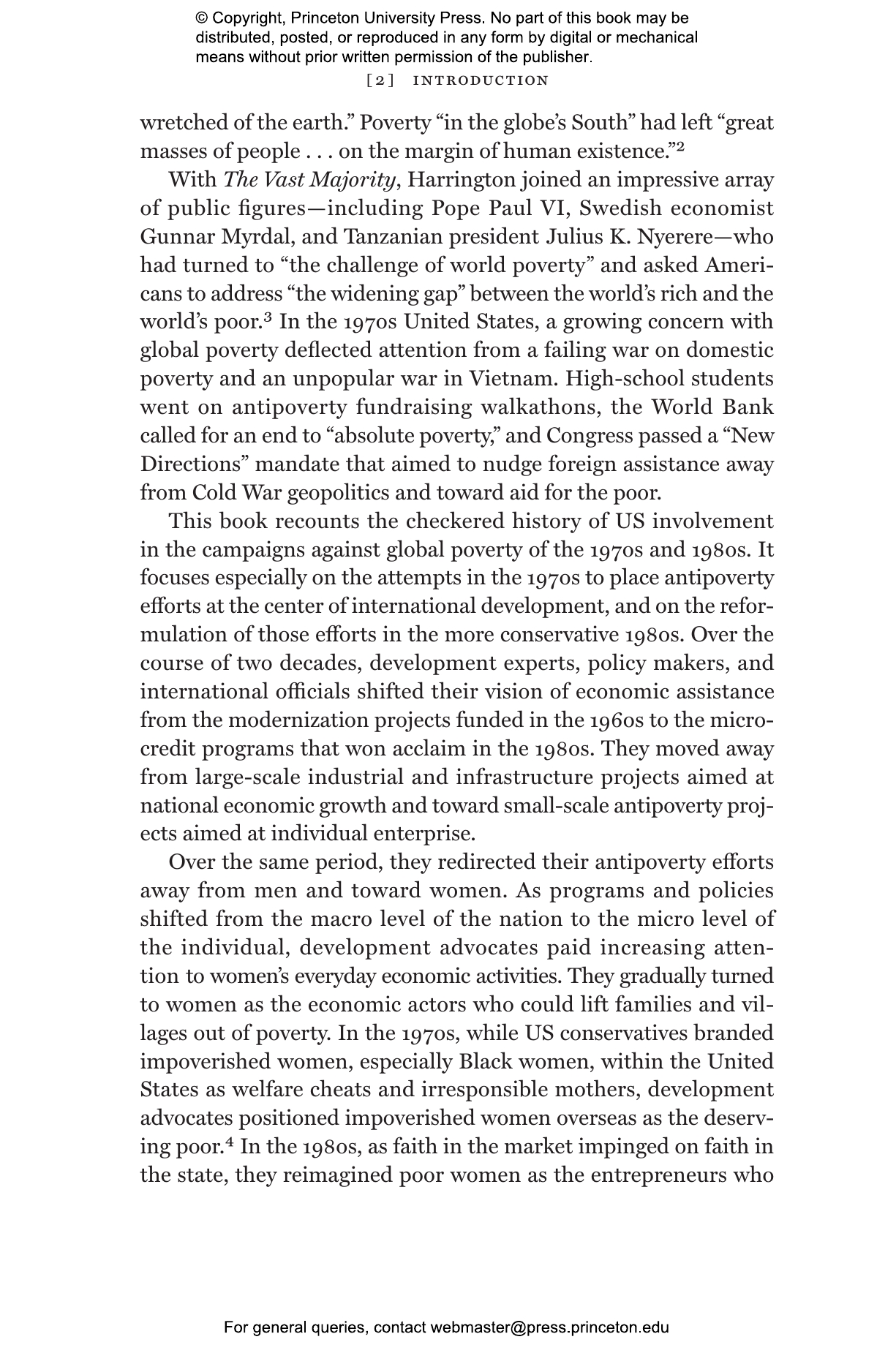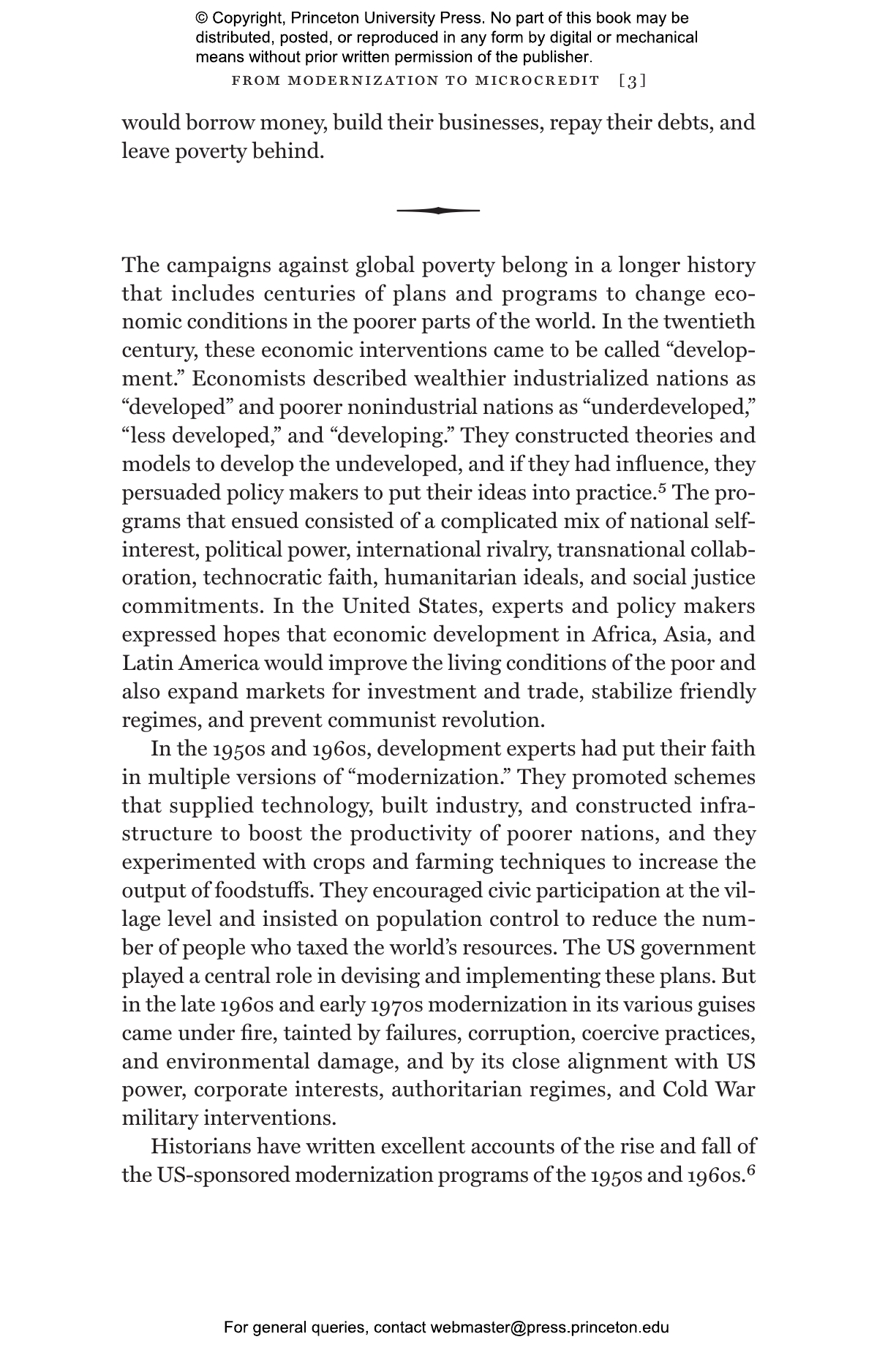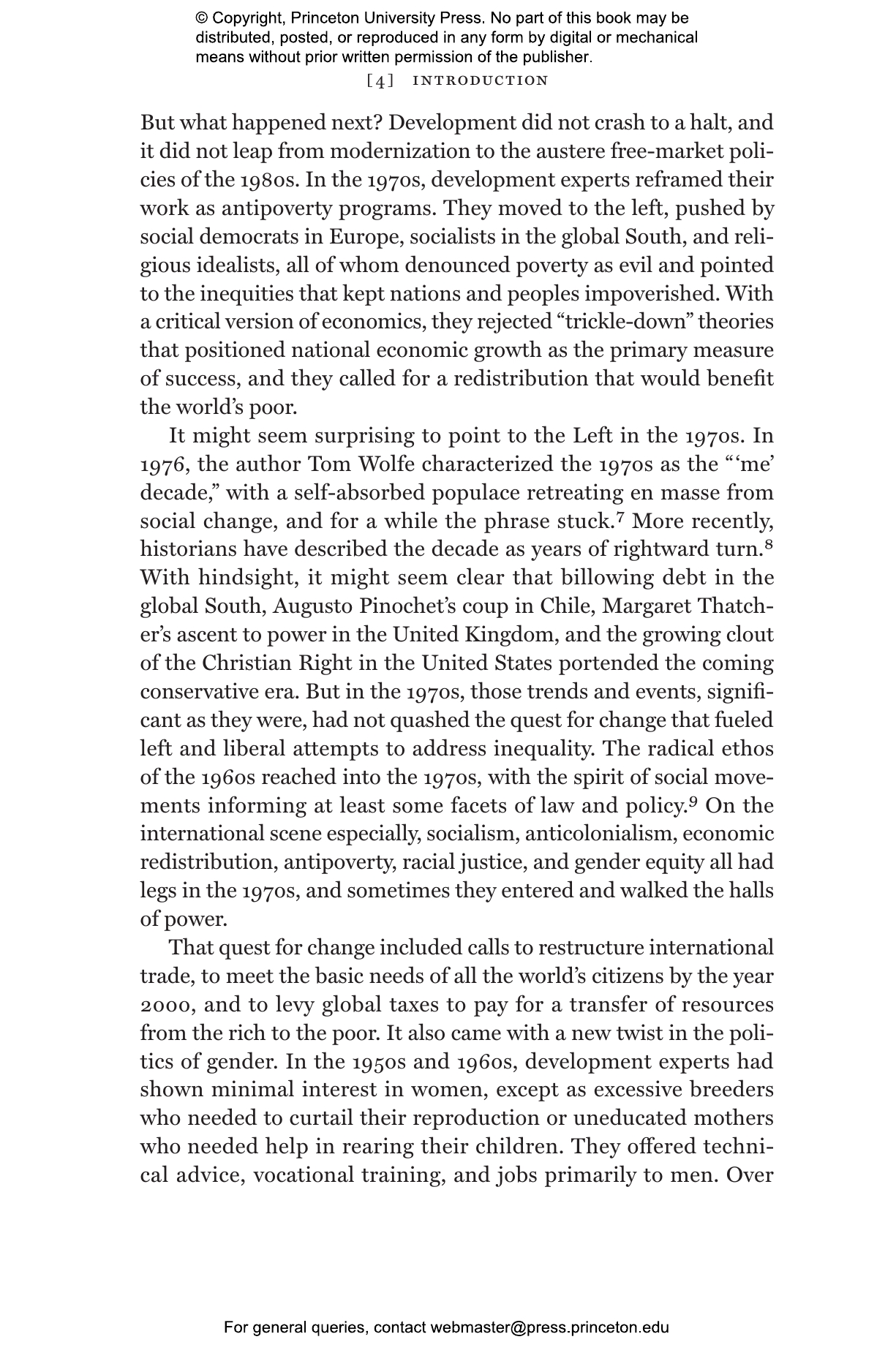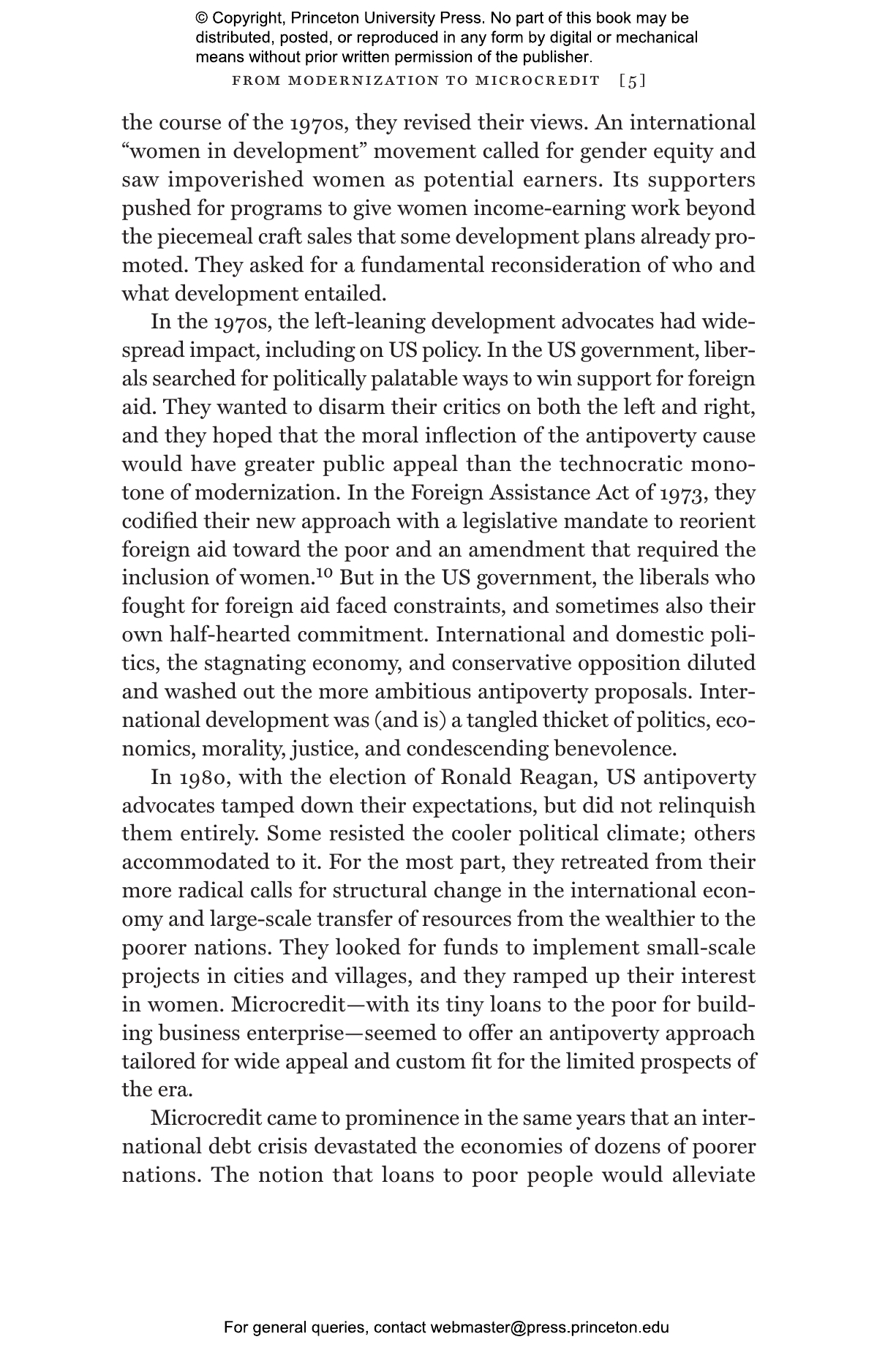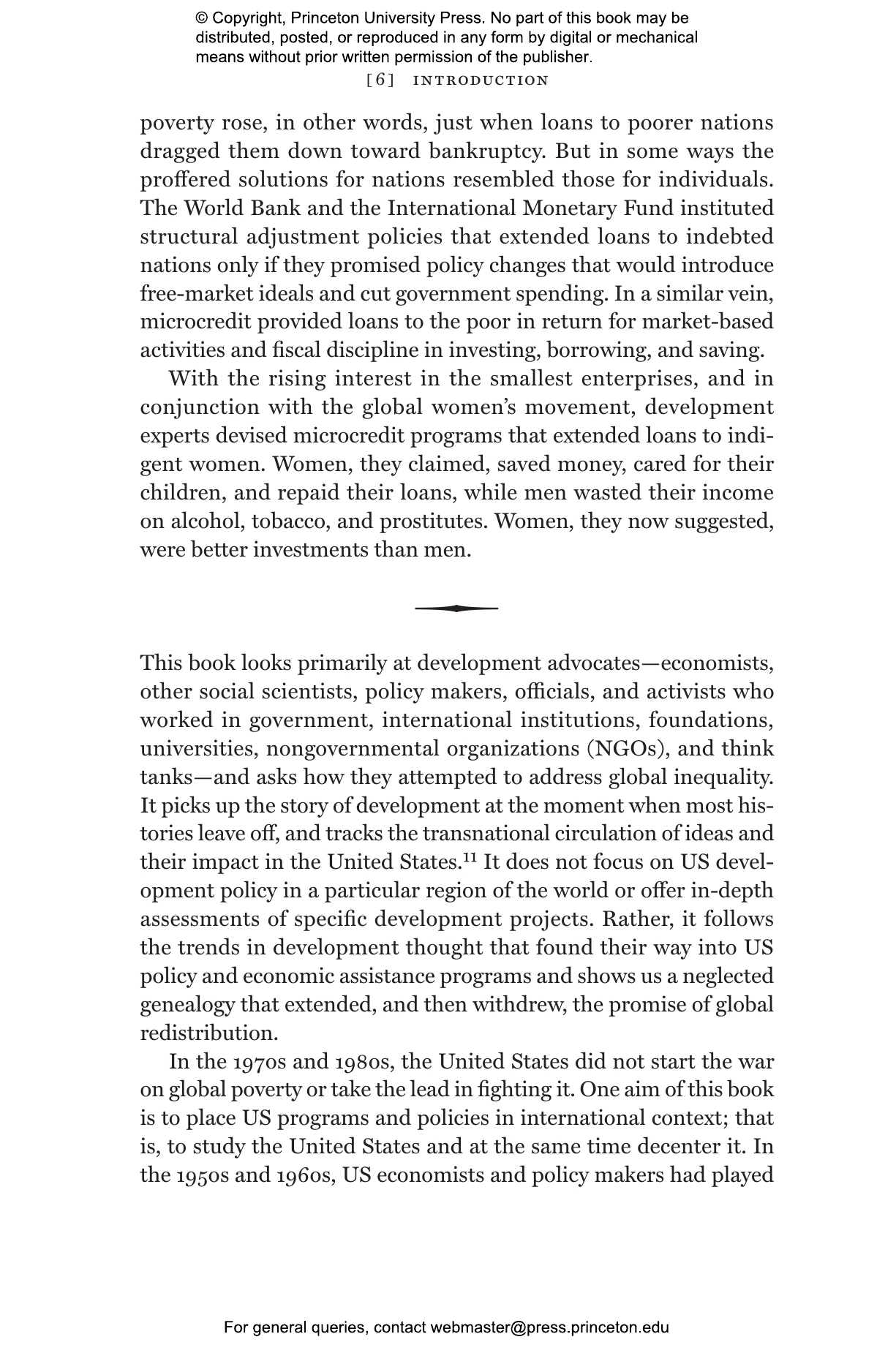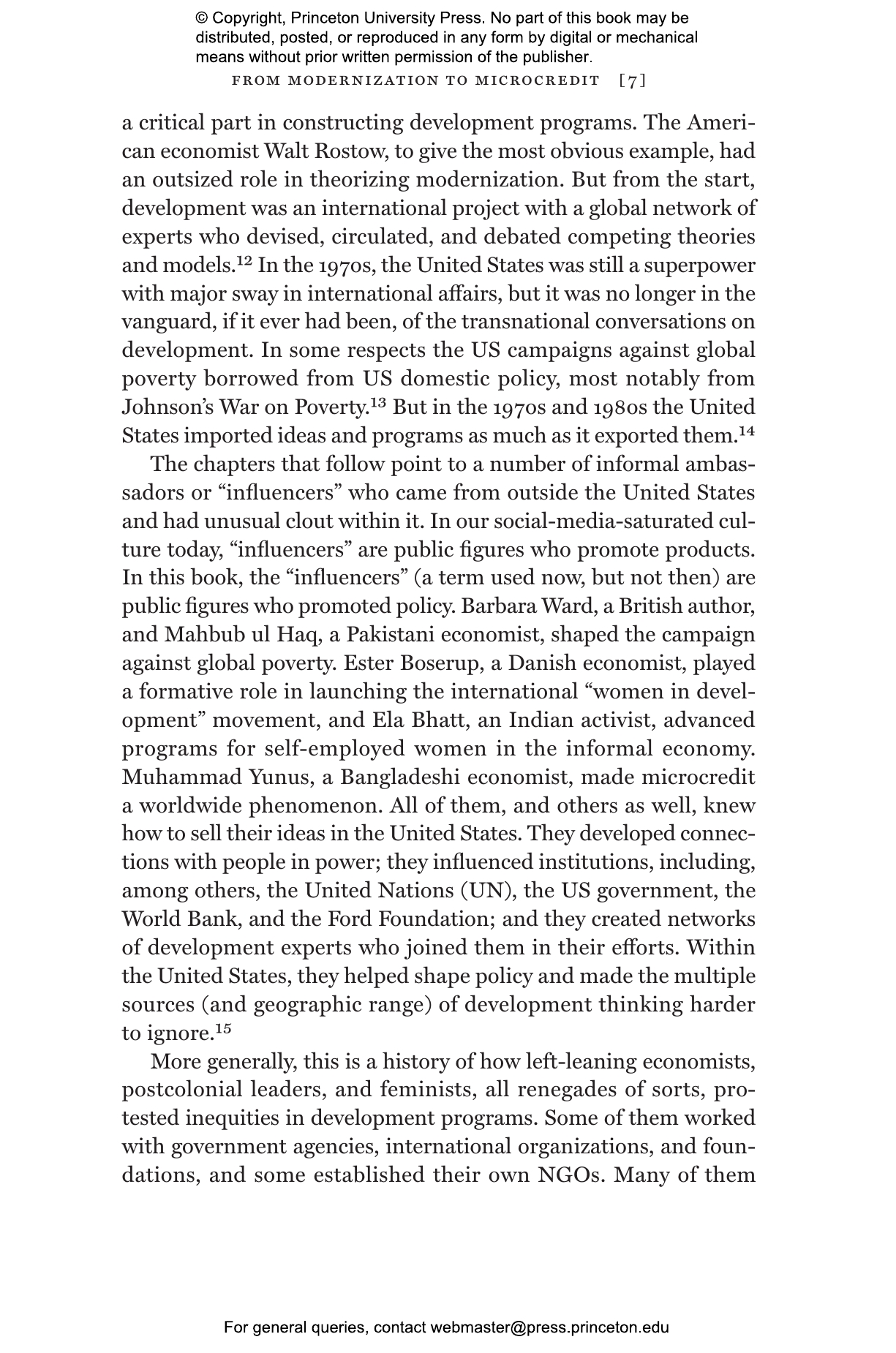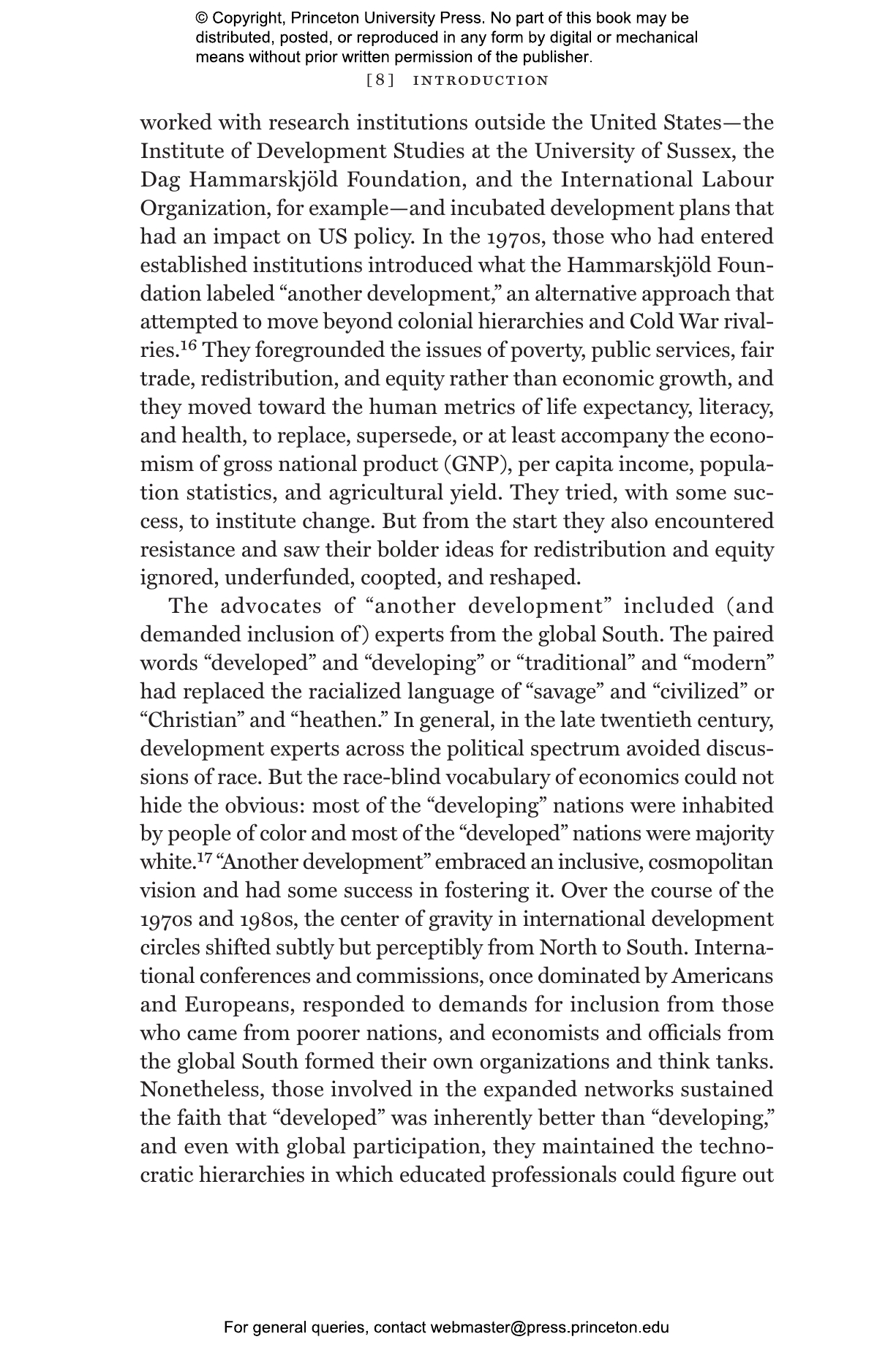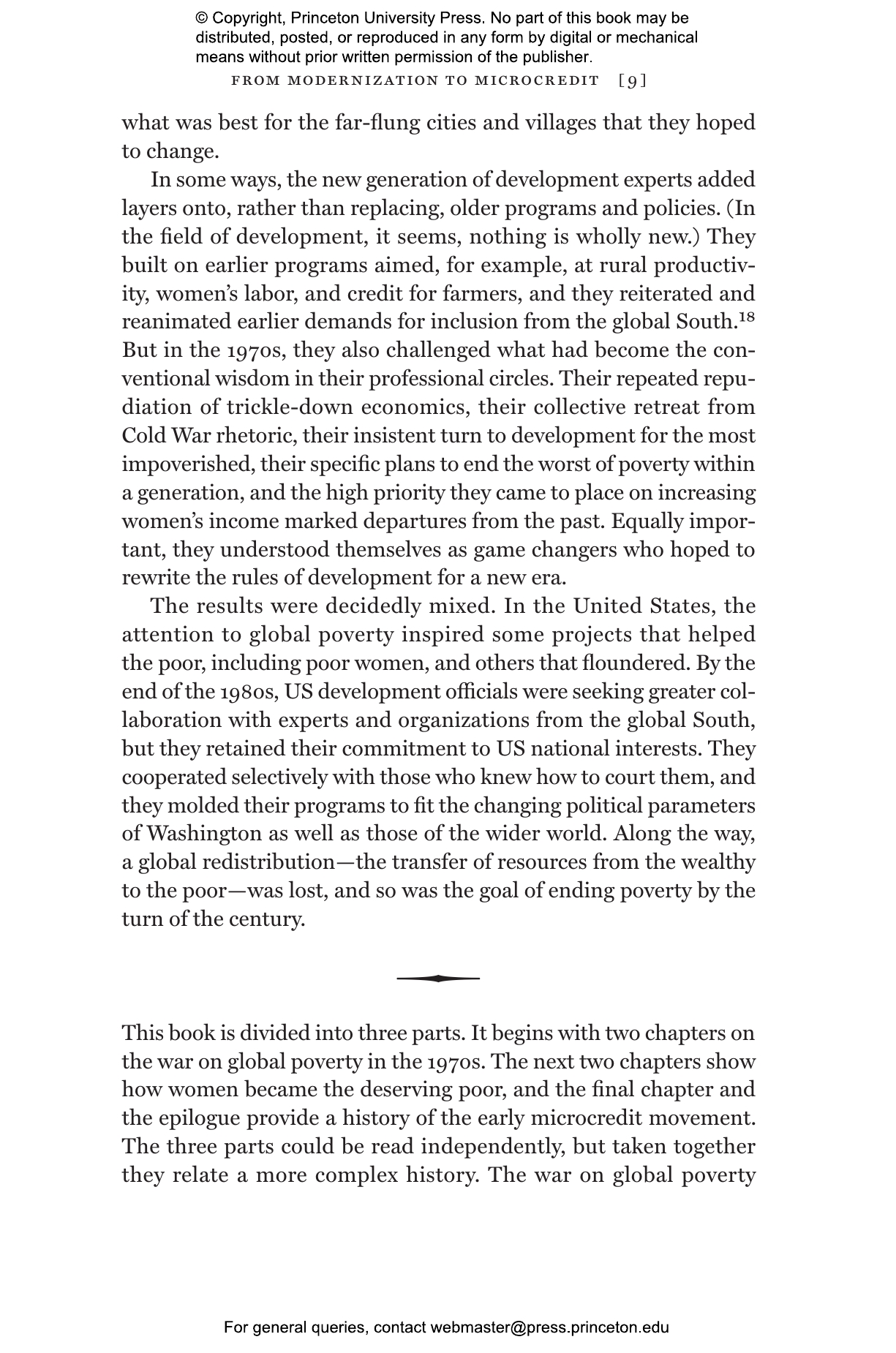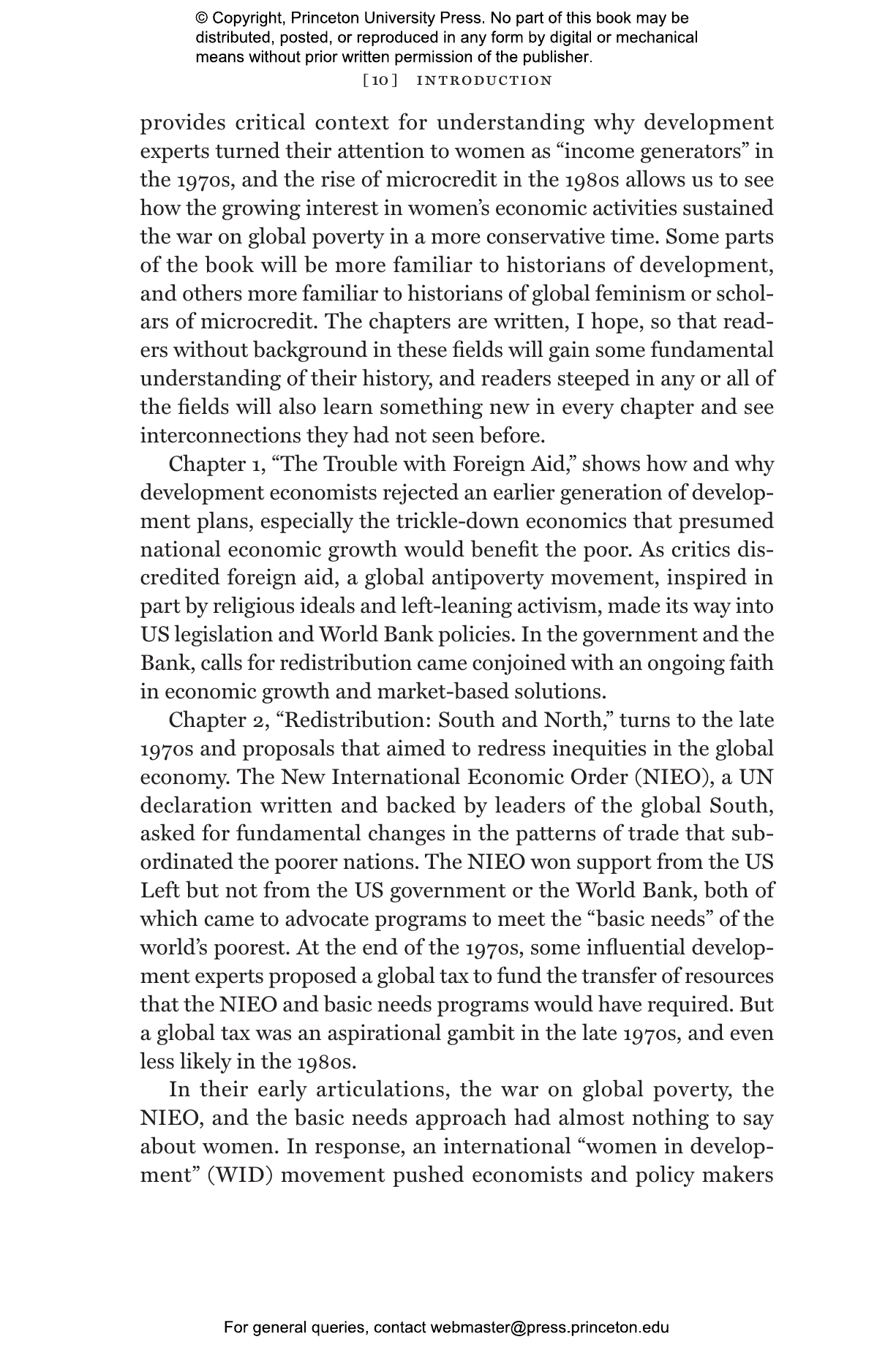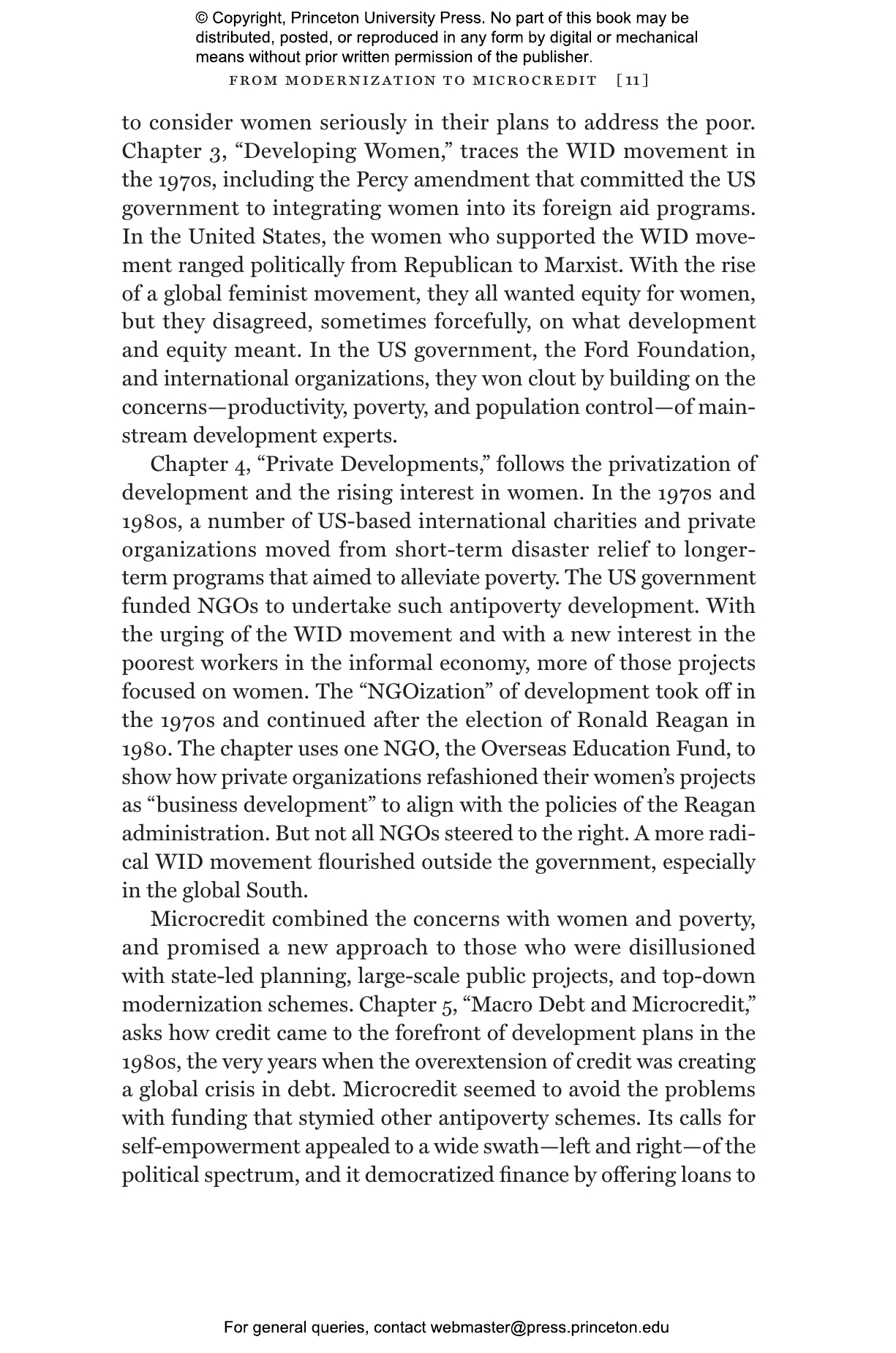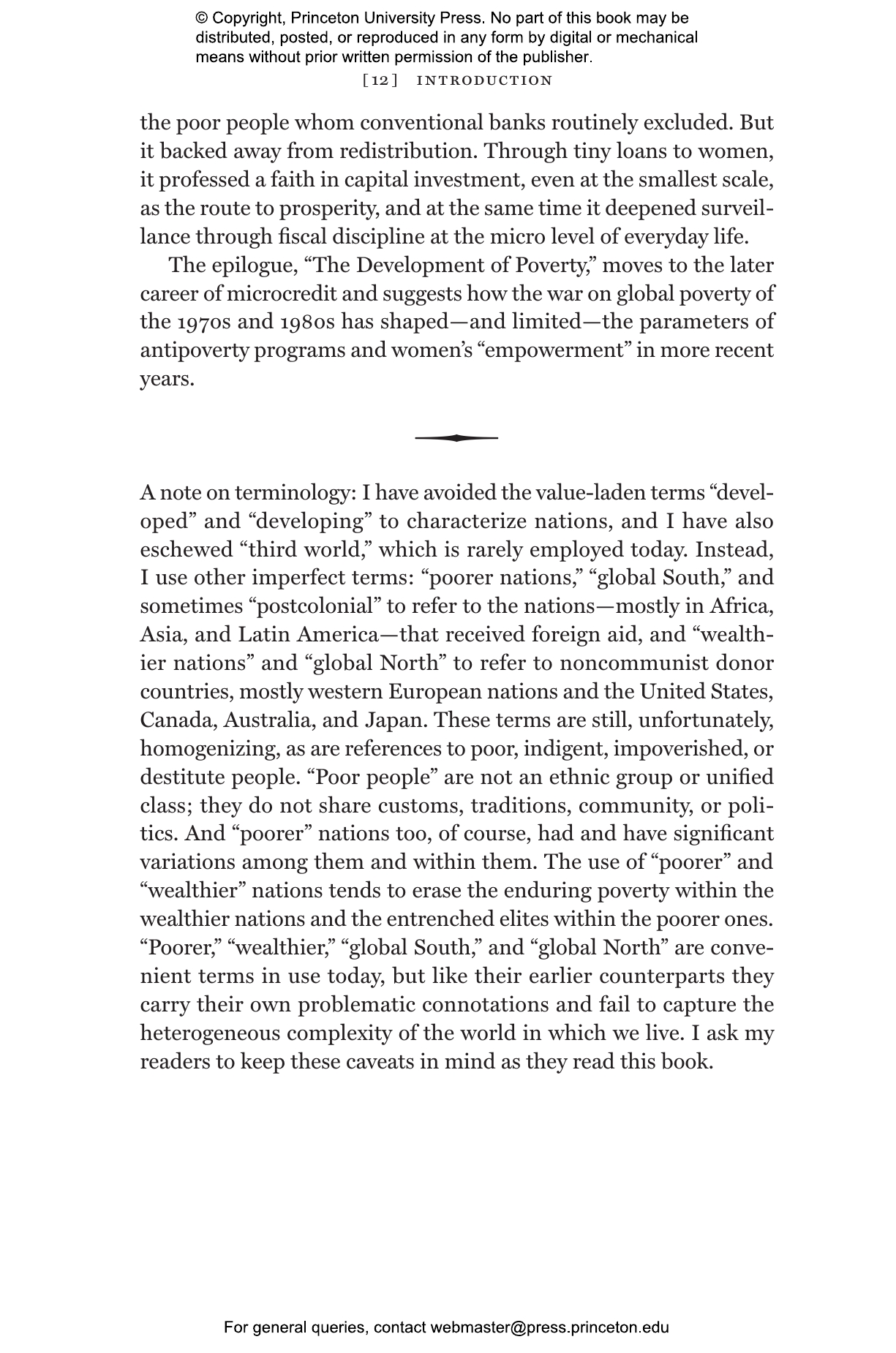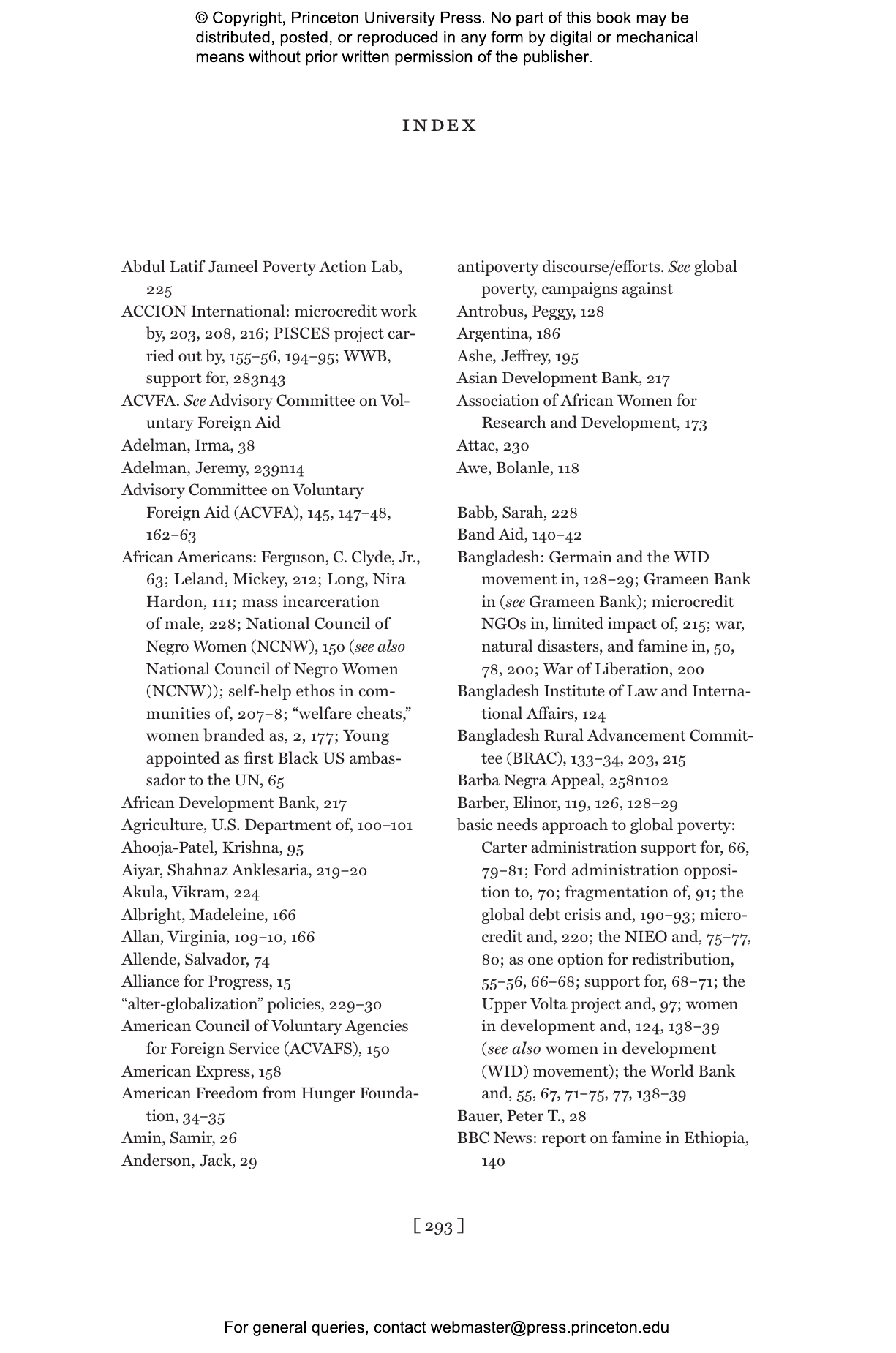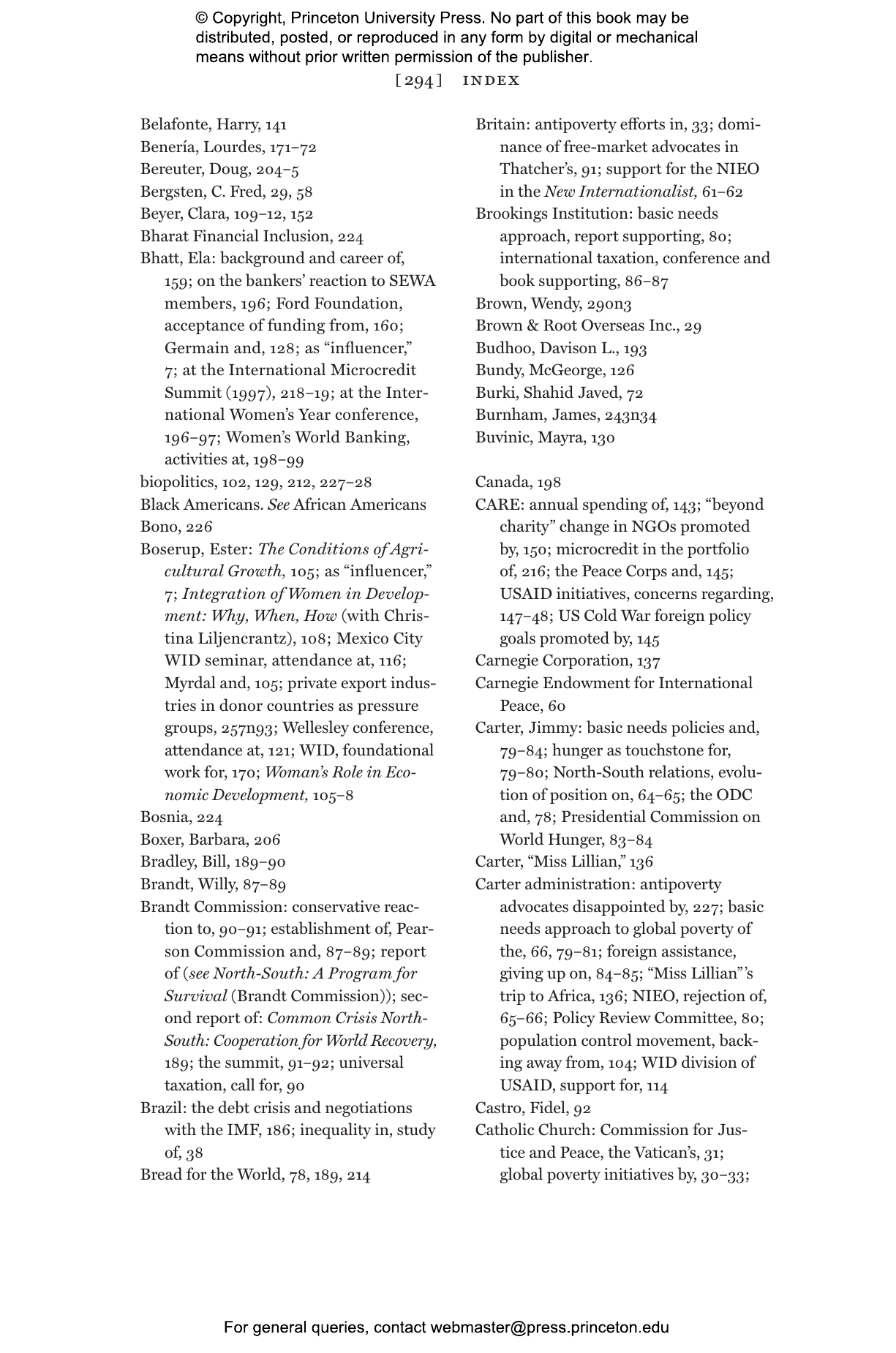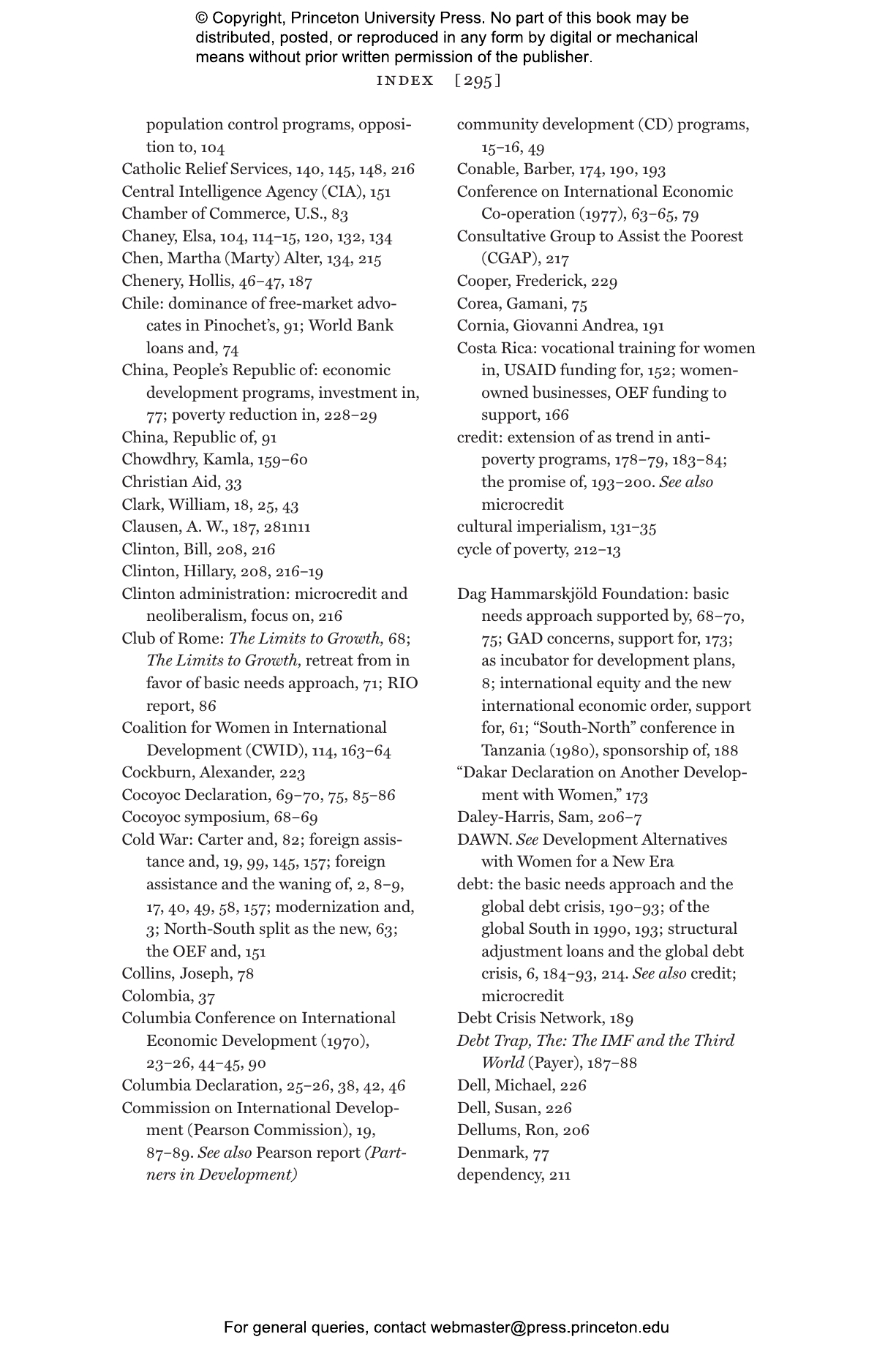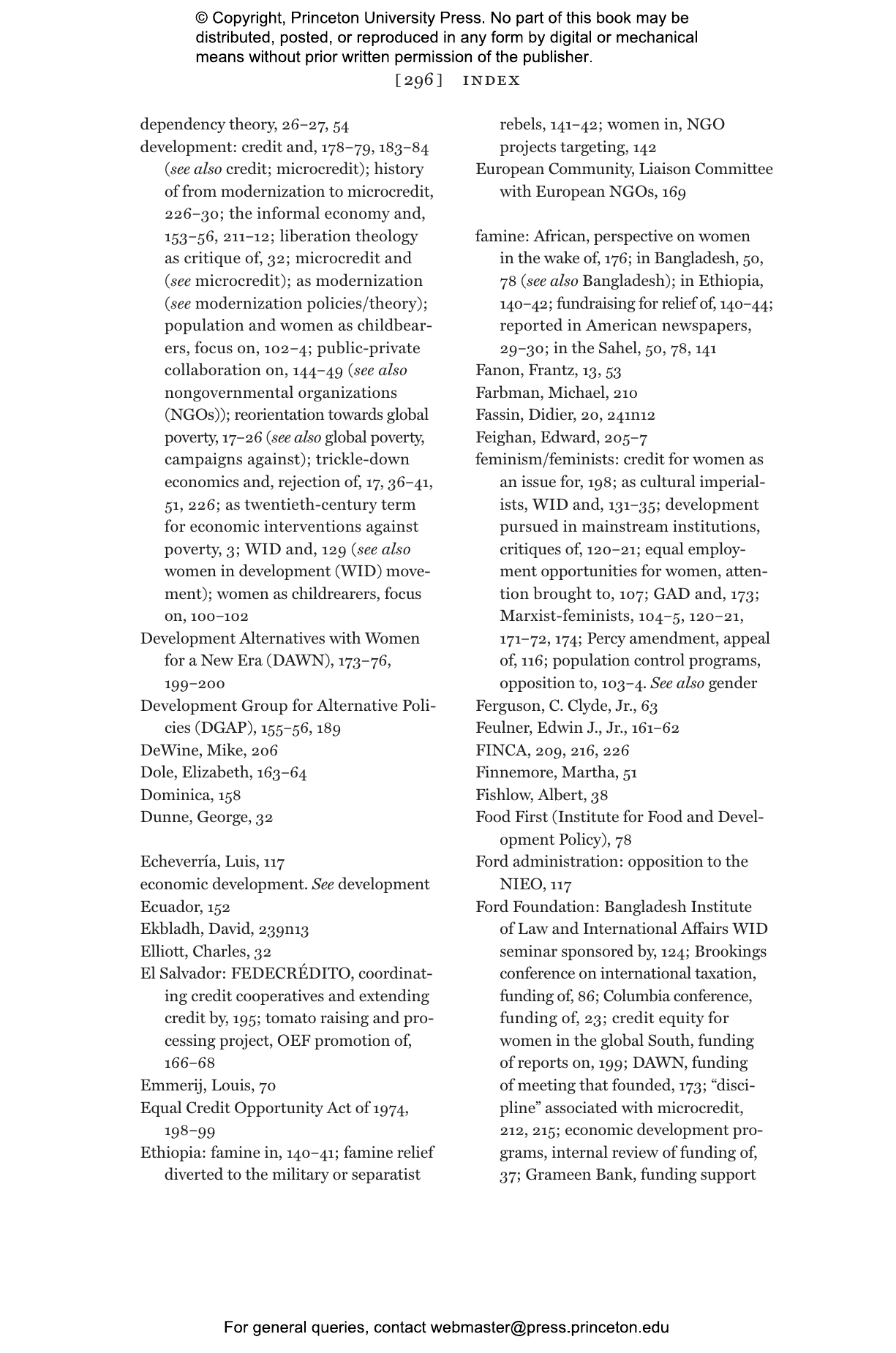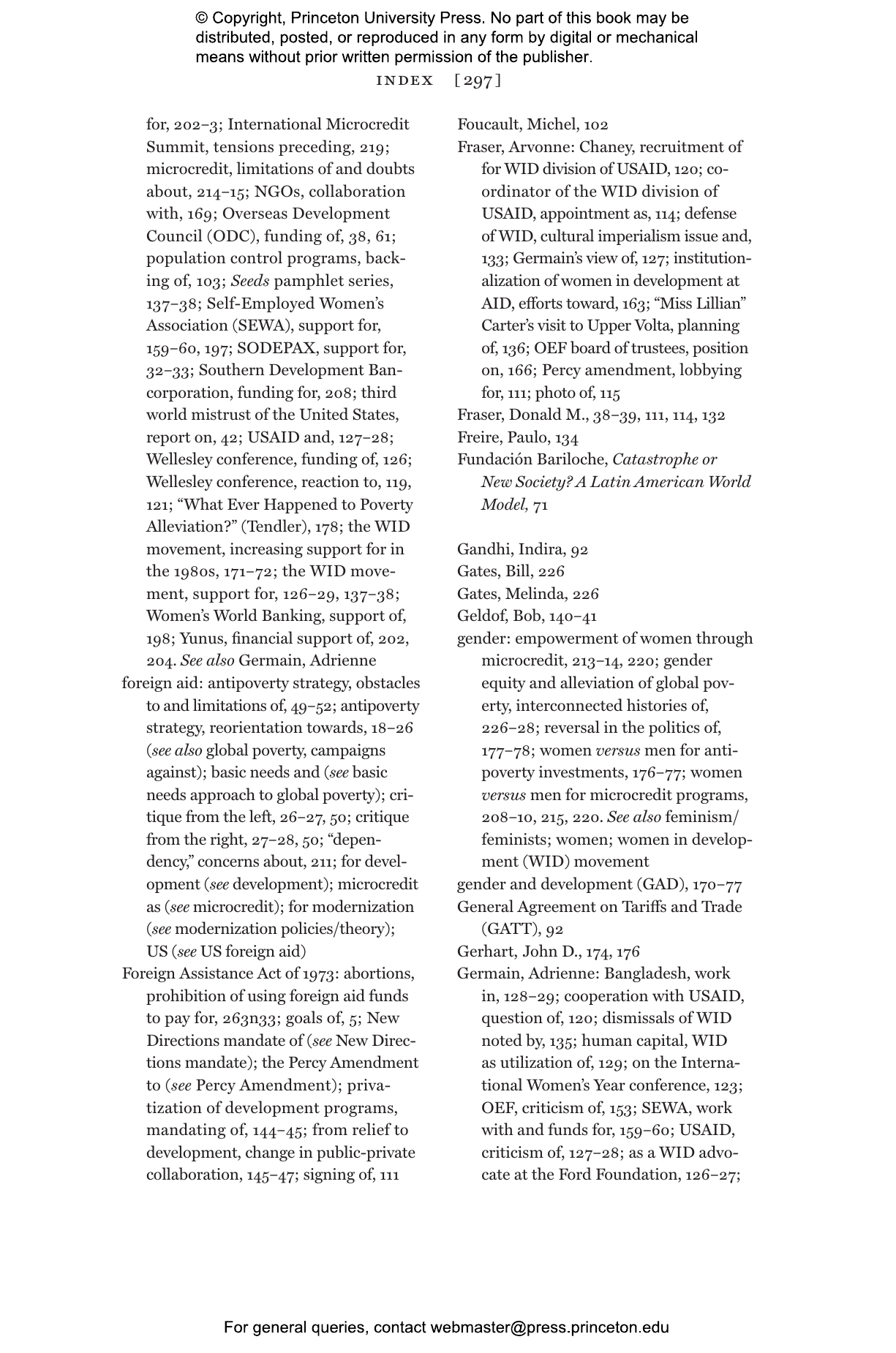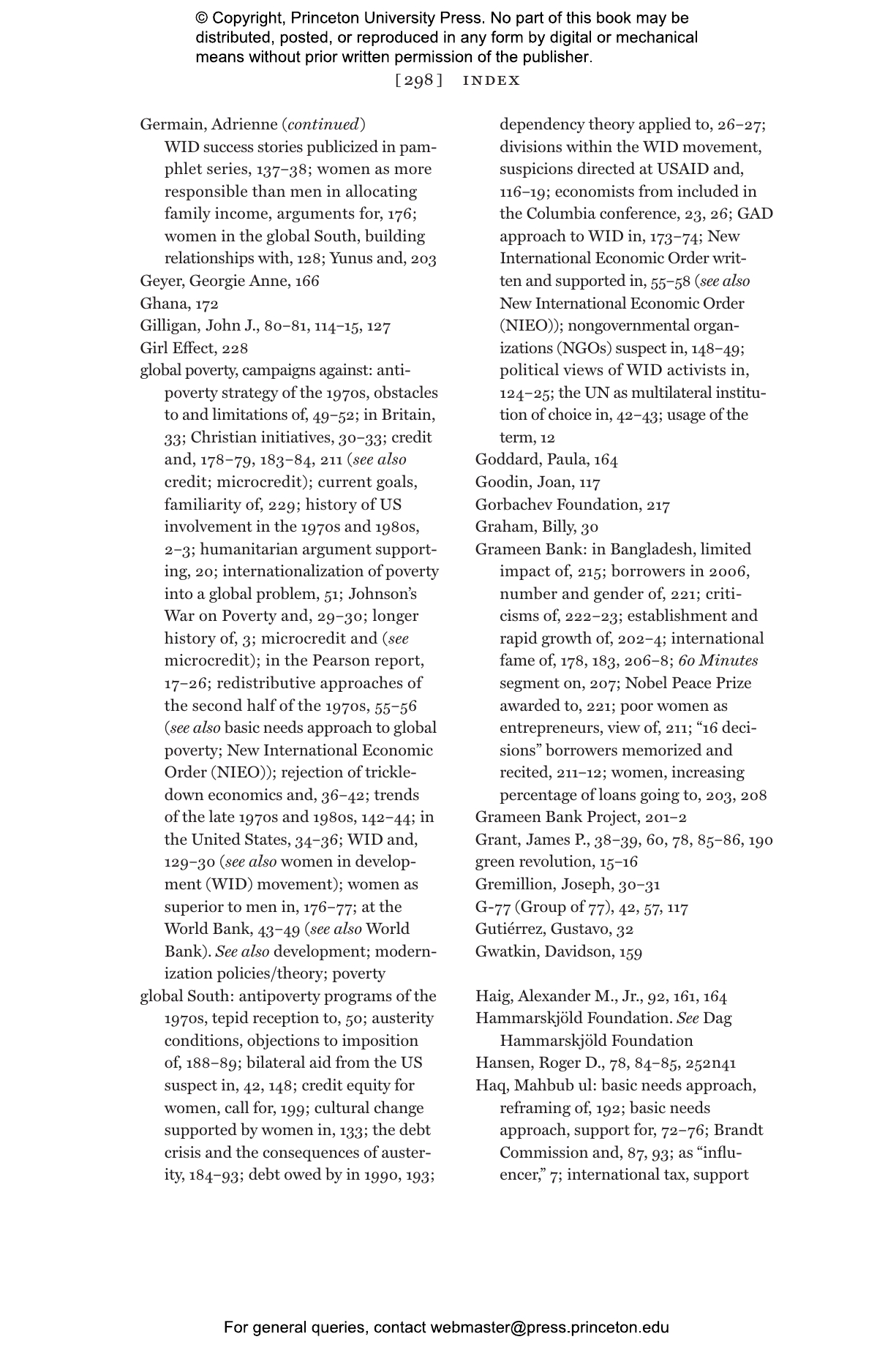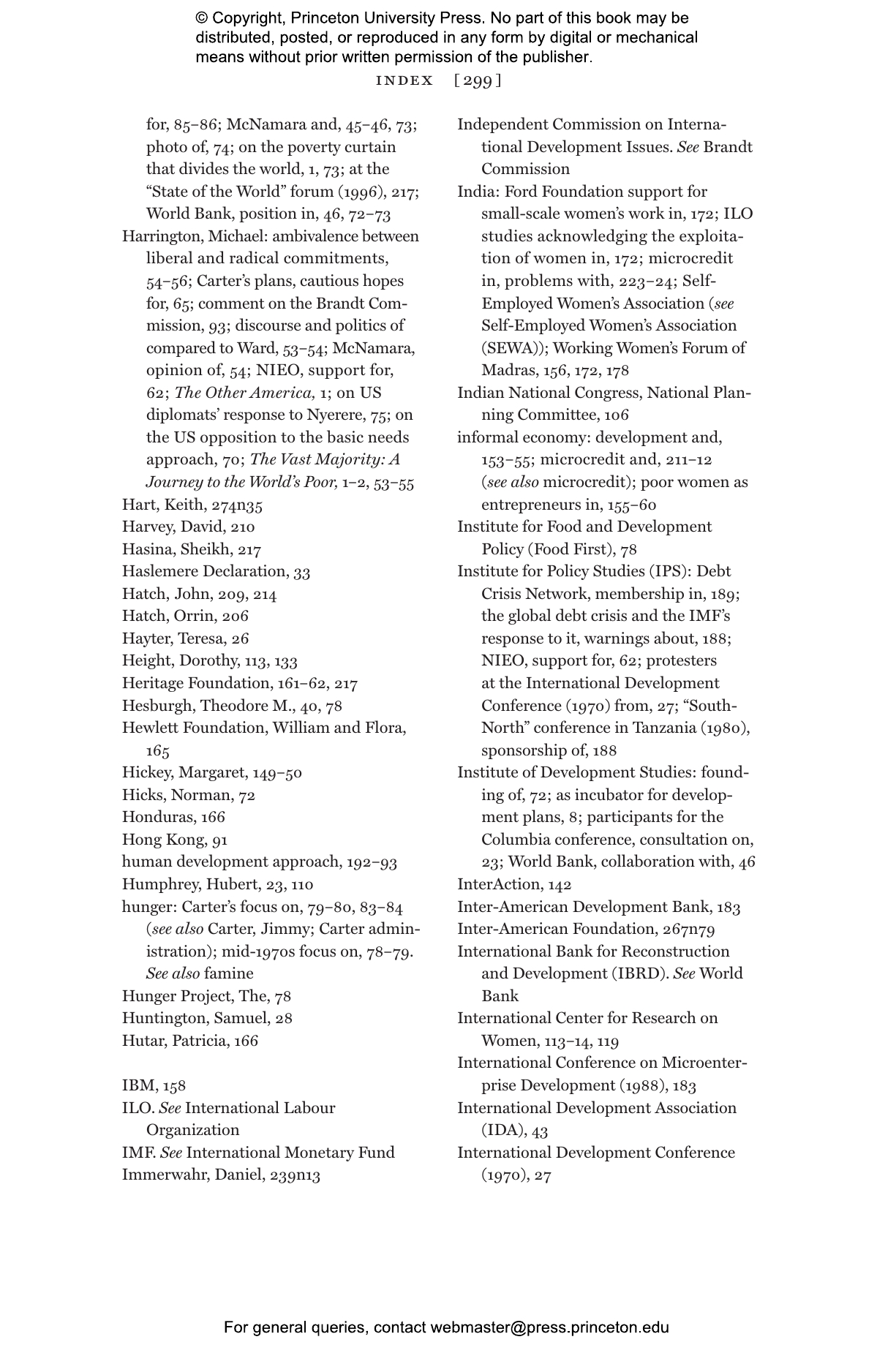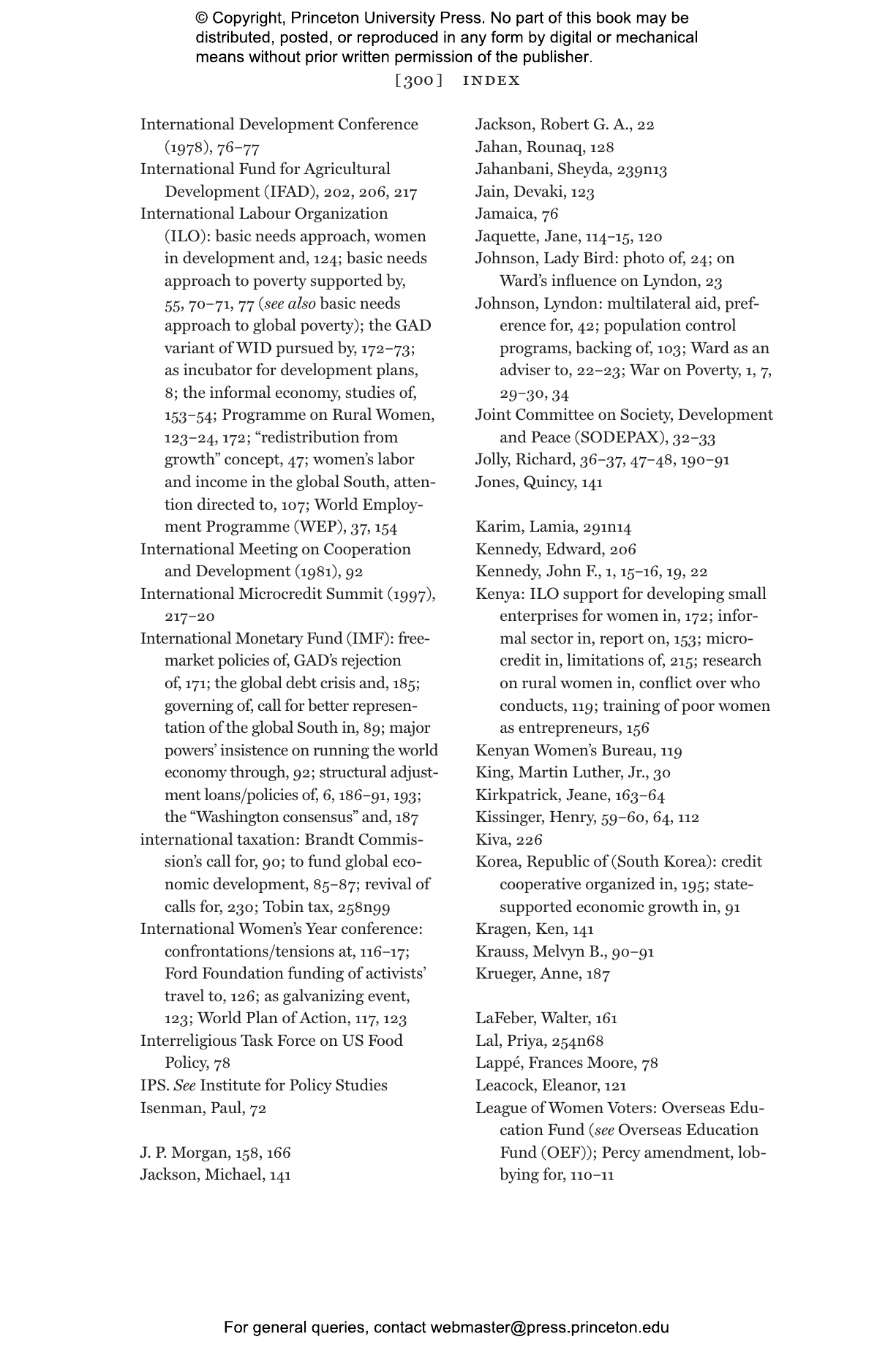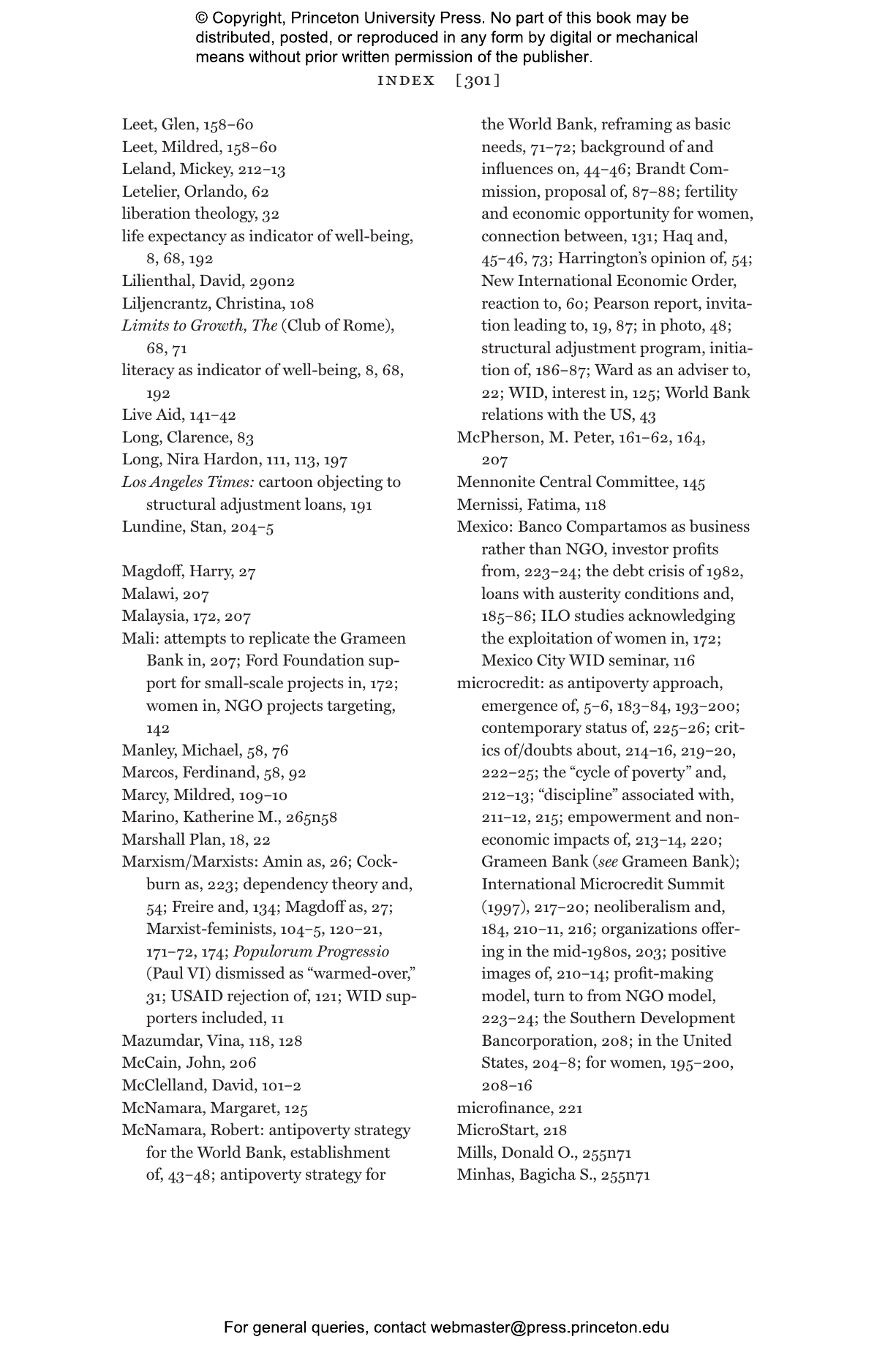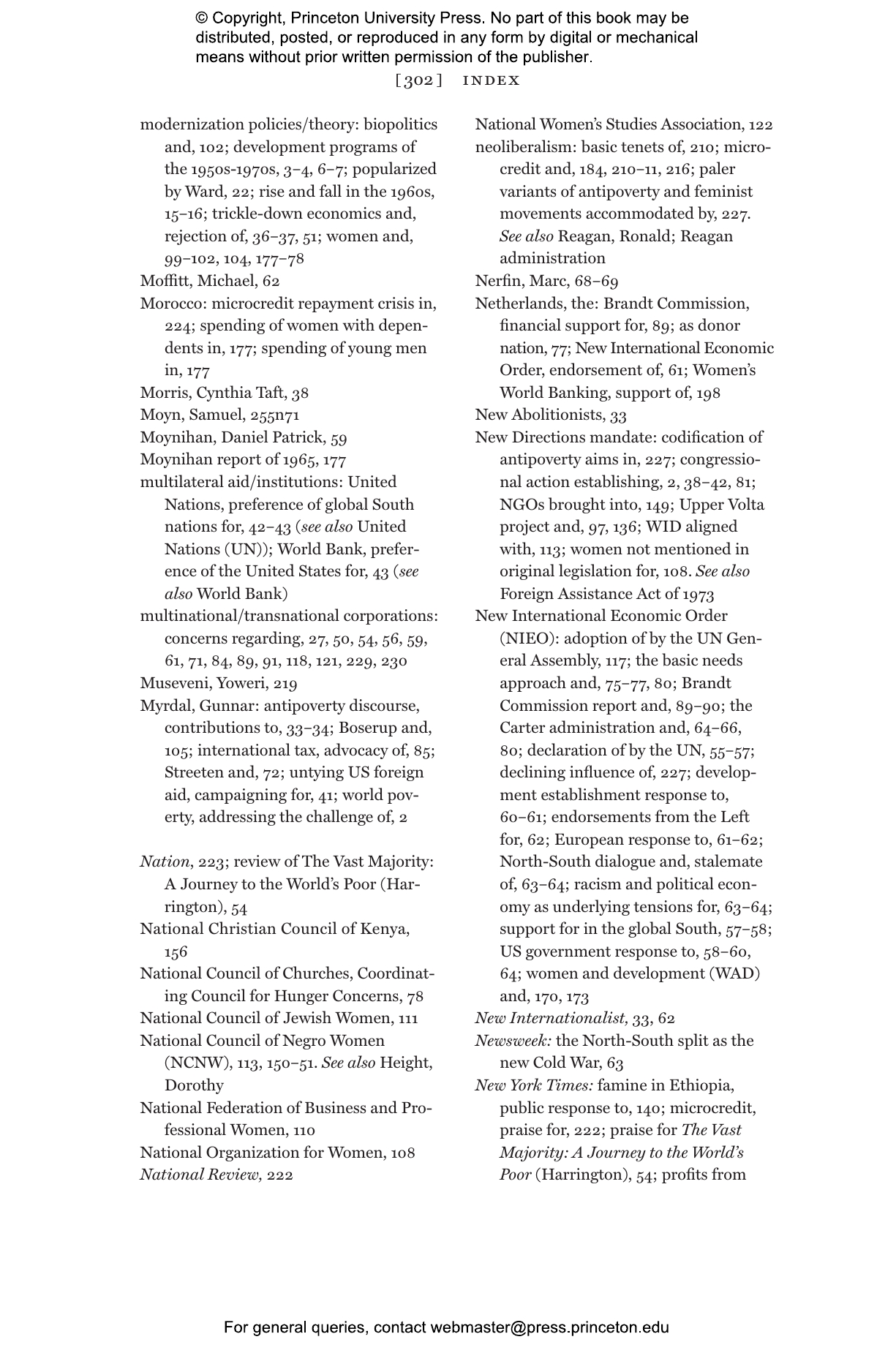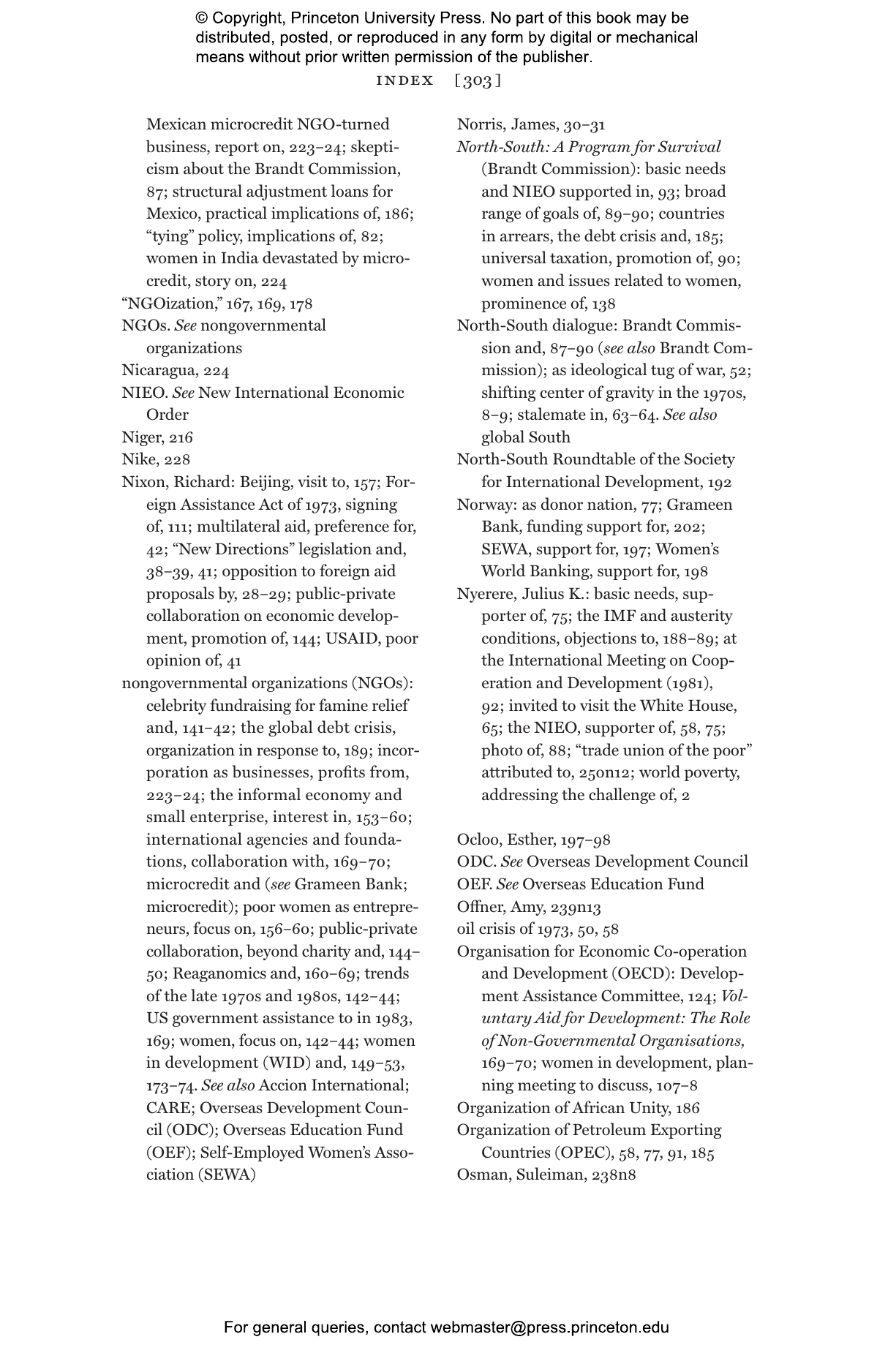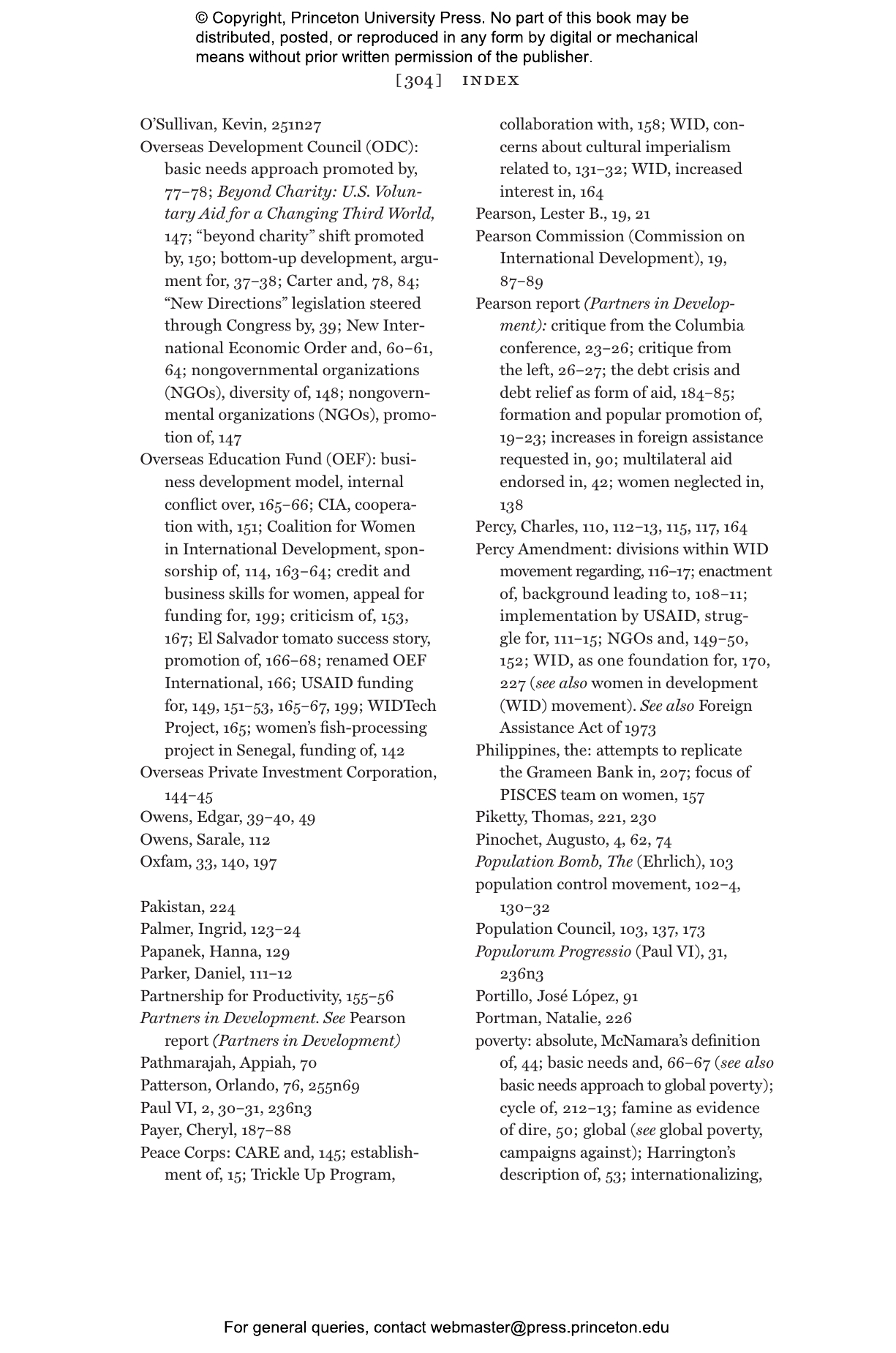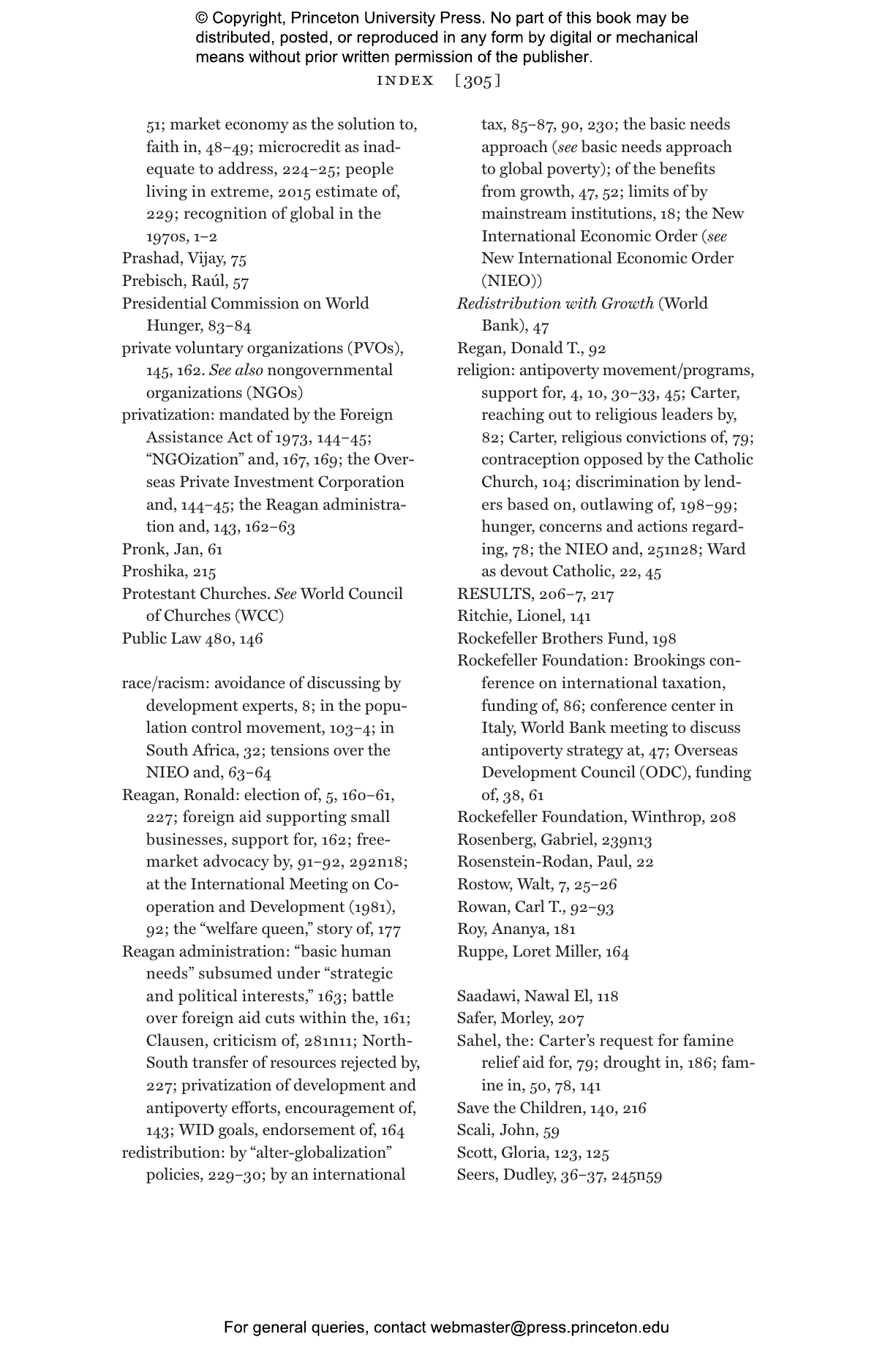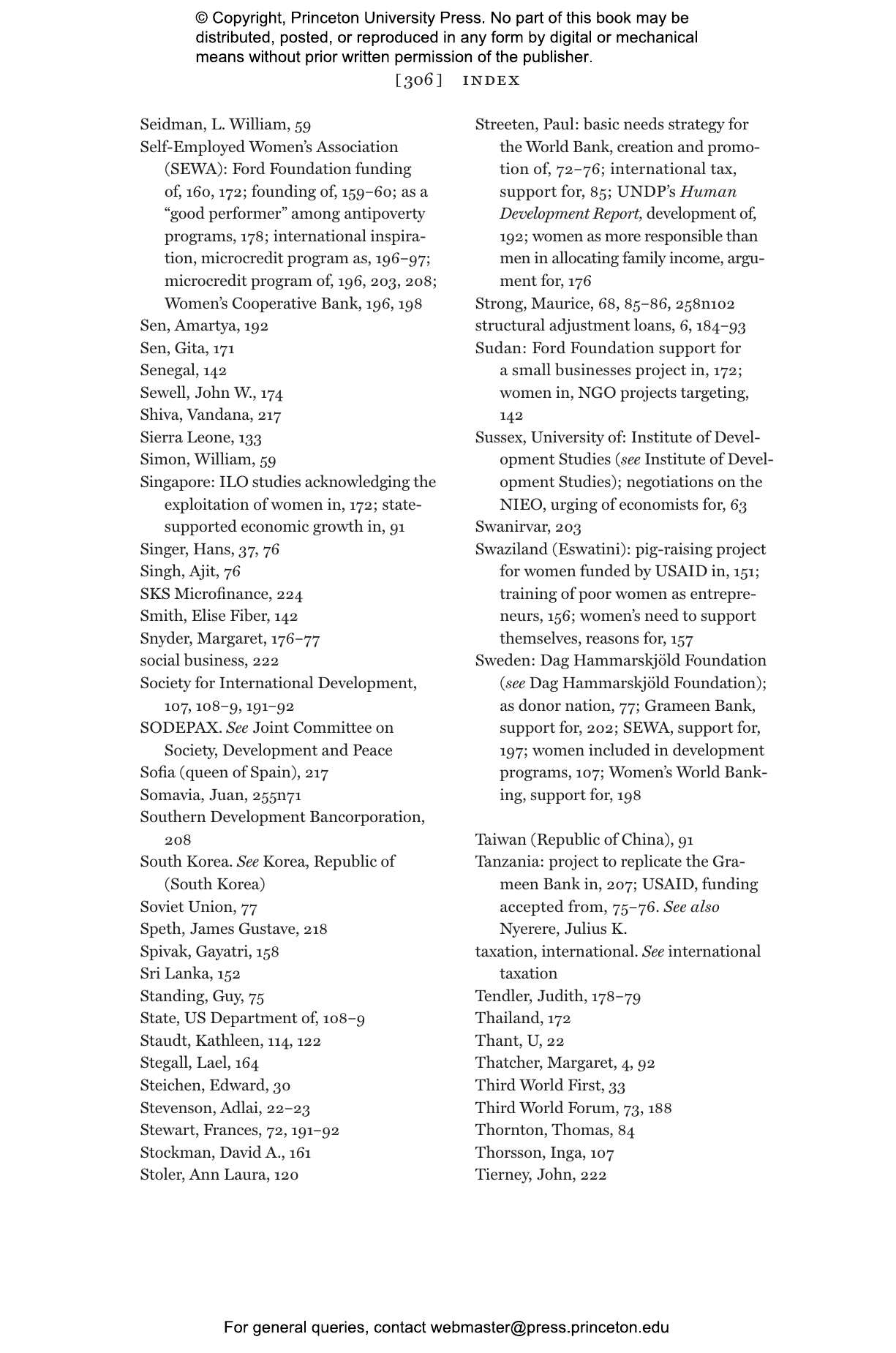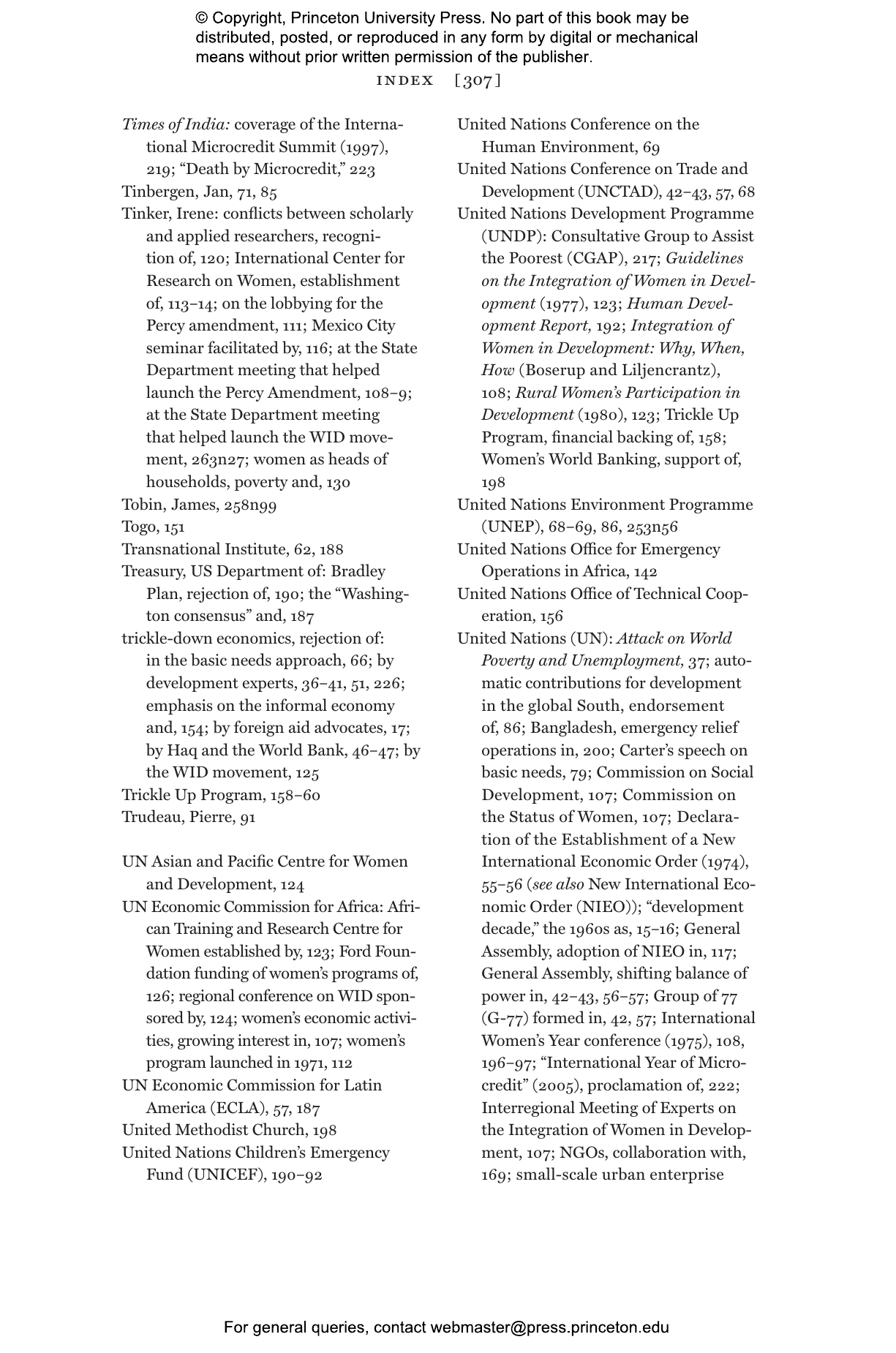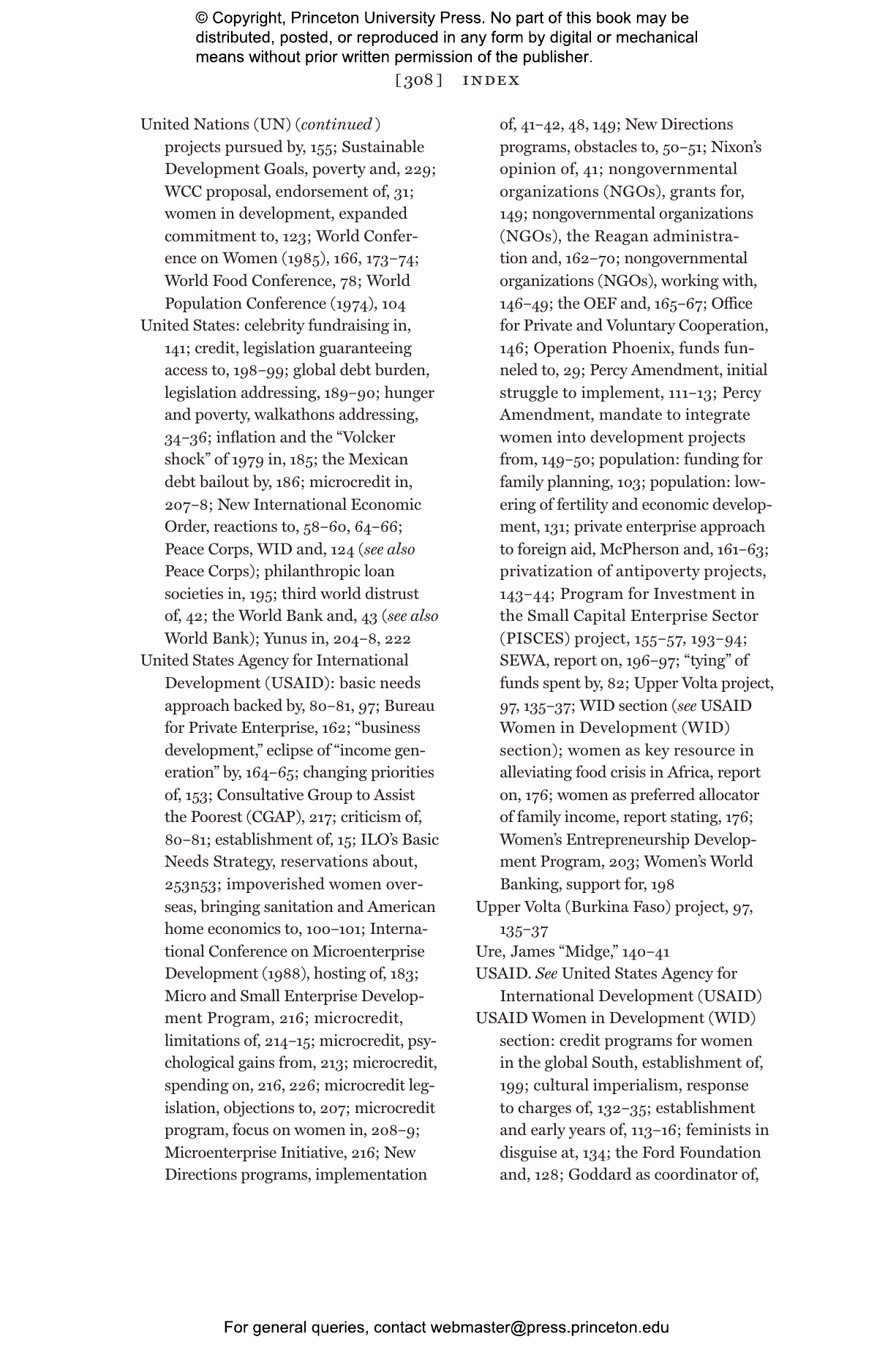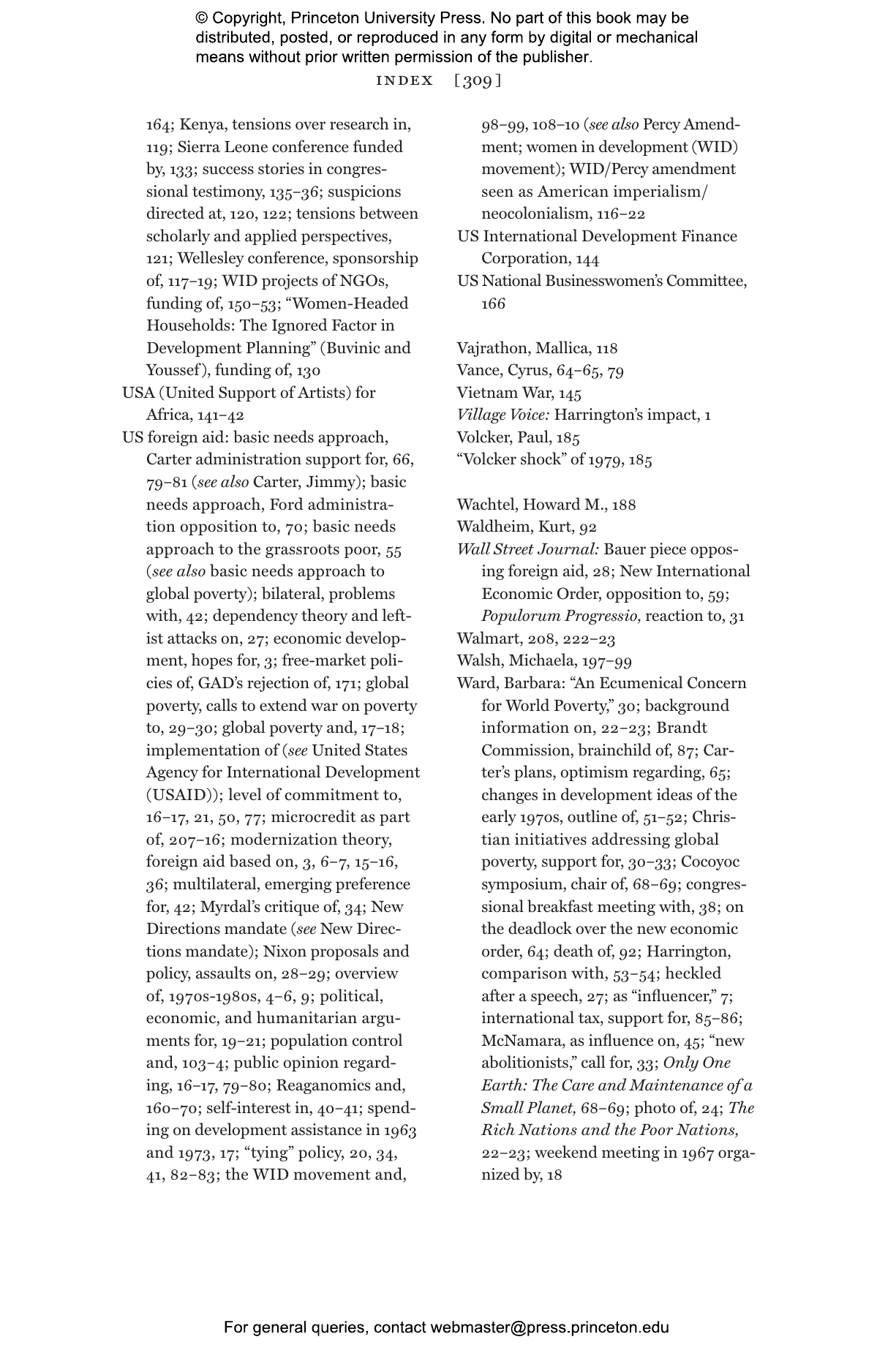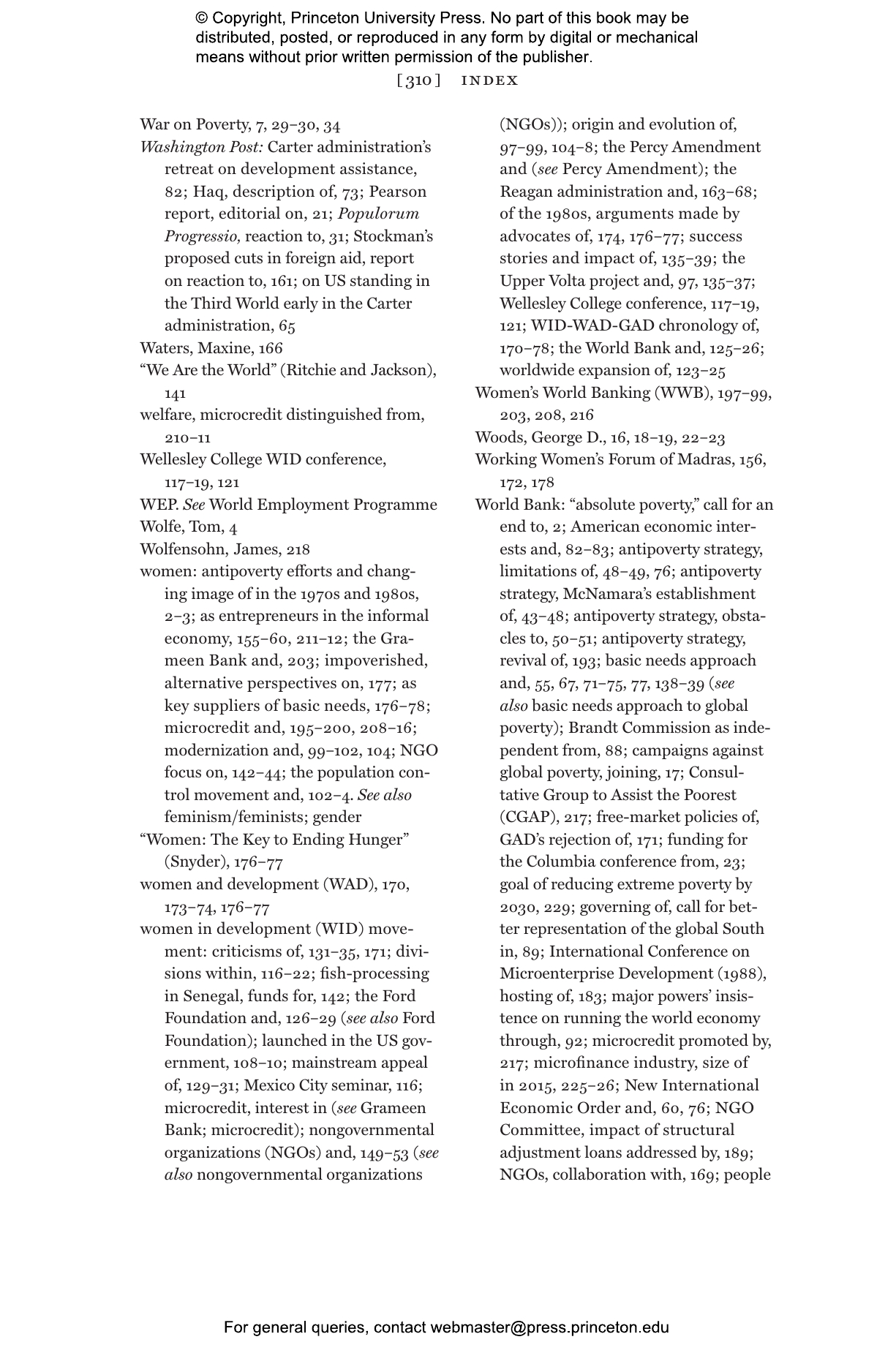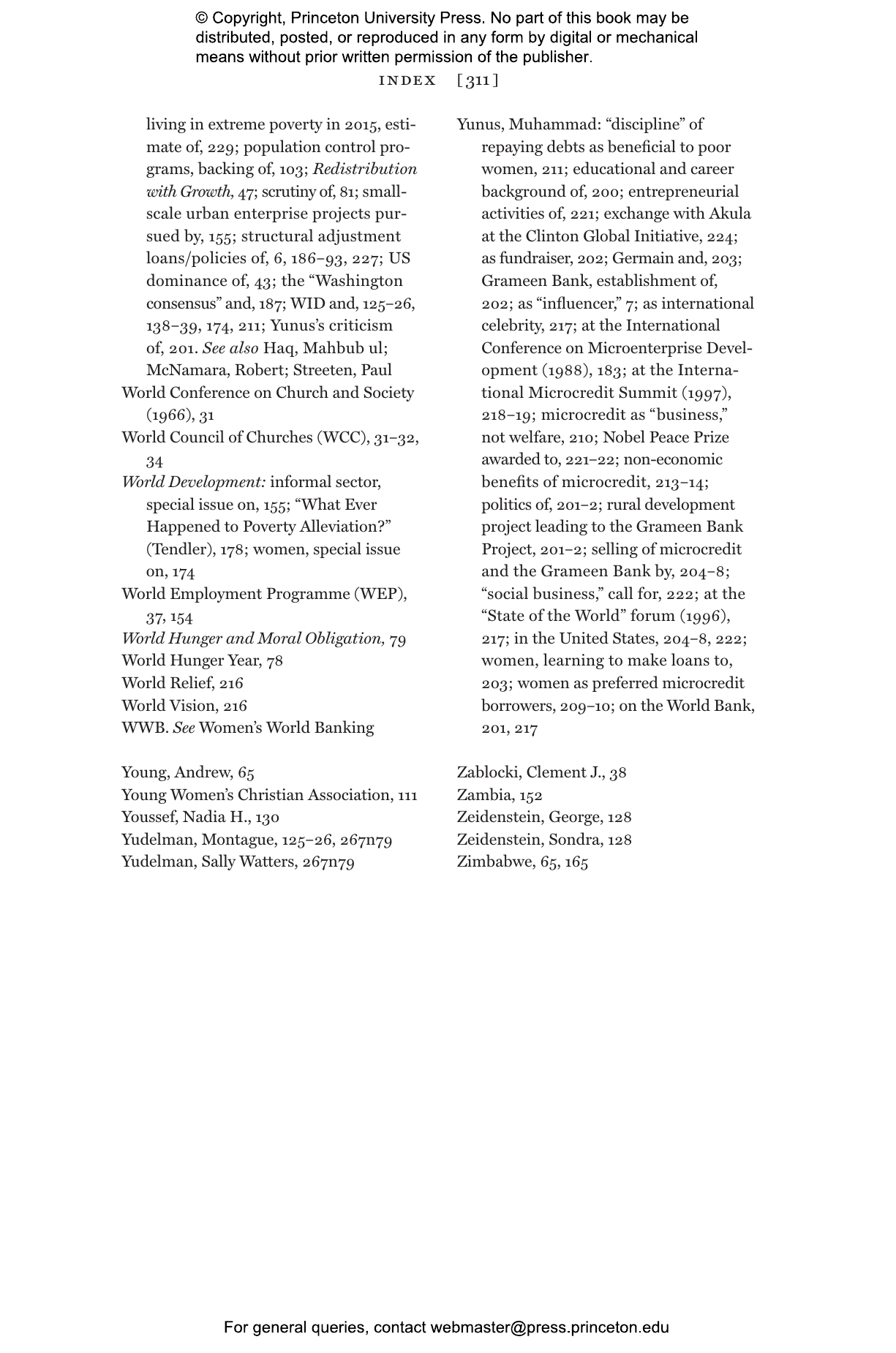A War on Global Poverty provides a fresh account of US involvement in campaigns to end global poverty in the 1970s and 1980s. From the decline of modernization programs to the rise of microcredit, Joanne Meyerowitz looks beyond familiar histories of development and explains why antipoverty programs increasingly focused on women as the deserving poor.
When the United States joined the war on global poverty, economists, policymakers, and activists asked how to change a world in which millions lived in need. Moved to the left by socialists, social democrats, and religious humanists, they rejected the notion that economic growth would trickle down to the poor, and they proposed programs to redress inequities between and within nations. In an emerging “women in development” movement, they positioned women as economic actors who could help lift families and nations out of destitution. In the more conservative 1980s, the war on global poverty turned decisively toward market-based projects in the private sector. Development experts and antipoverty advocates recast women as entrepreneurs and imagined microcredit—with its tiny loans—as a grassroots solution. Meyerowitz shows that at the very moment when the overextension of credit left poorer nations bankrupt, loans to impoverished women came to replace more ambitious proposals that aimed at redistribution.
Based on a wealth of sources, A War on Global Poverty looks at a critical transformation in antipoverty efforts in the late twentieth century and points to its legacies today.
Awards and Recognition
- Winner of the Myrna F. Bernath Book Award, Society for Historians of American Foreign Relations
Joanne Meyerowitz is the Arthur Unobskey Professor of History and American Studies at Yale University. Her books include Women Adrift and How Sex Changed.
"Meyerowitz's narrative puts into dialogue the usually separate histories of development doctrine, post-1960s leftism, global feminism, and the economics of microcredit. . . . A War on Global Poverty fills an important gap in the literature."—Nils Gilman, Journal of American History
"Joanne Meyerowitz’s A War on Global Poverty: The Lost Promise of Redistribution and the Rise of Microcredit makes clear that the US welfare state has always had an international dimension. We can’t understand how the social safety net eroded without examining its reach abroad."—Maia Silber, Chicago Review
"Meyerowitz rightly foregrounds the significance of gendered notions of uplift and empowerment in remaking international aid."—Boston Review
"Illuminating, wonderfully written, and fast-paced, A War on Global Poverty shows for the first time how the practice of extending small loans to women in the Global South became orthodoxy among US development experts and institutions. This is an accessible and notable work on a very compelling topic."—Amy C. Offner, University of Pennsylvania
"A War on Global Poverty lucidly guides readers through the thicket of debates, politicking, and false starts that have defined US efforts for more than a half century. Moving deftly from the intimate and biographical to the structural and institutional, Meyerowitz demonstrates that we do not need another scalable program or innovative lending policy—we simply need the political will to make fighting poverty and inequality a priority in its own right."—Jocelyn Olcott, Duke University
"Deeply informed and beautifully written, A War on Global Poverty offers a vivid new way to think about the evolution—rhetorical and substantive—of US antipoverty programs from the 1960s to the present. This is a brilliant book from one of our most versatile historians."—Andrew Rotter, Colgate University
"This sensitive and searching book reveals the little-known story of innovators and activists who awakened the international community to the invisible economies that can be energized by small acts. Picking up where other histories of development leave off, A War on Global Poverty celebrates the visionaries who overturned orthodoxy and attempted to soften the injustices of a neoliberal world."—Nick Cullather, Indiana University
"A War on Global Poverty is a valuable account of the ways in which American development debates and development assistance approaches changed over the course of the 1970s and 1980s. There exists, so far, no systematic account of this history beyond the 1960s. This much-needed book will be received with great interest by historians of the United States in the late twentieth century as well as by historians of development."—Corinna Unger, European University Institute
